Why Peace Finance?
- The number of civil wars has almost tripled over the course of the past decade, with a six-fold increase in battle-related deaths since 2011. The OECD estimates that 1.9 billion people now live in fragile and conflict-affected settings (FCS), amounting to 24 per cent of the global population. In 2022, the global economic impact of violence was estimated to be $17.5 trillion, equivalent to 12,9 per cent of the global GDP, or 2,200$ per person. It is time to recognise that conflict, much like climate change, is a defining feature of modern times, which will require concerted efforts to surmount.
- This means that most globally diversified investment portfolios are highly exposed to conflict risks, yet this fact is often invisible to investors. This is because most exposure to FCS is indirect and through the supply chains of large, multinational corporations. The raw materials needed for food production, digitalisation, the energy transition and various consumer goods are often sourced from FCS. Such raw materials include copper, cobalt, tin, tantalum, tungsten, rare earth metals, gold, coffee, cocoa, cotton, leather, etc. This trend is only set to increase as the world transitions to a more sustainable future.
- Due to the systemic nature of conflict risk in global supply chains, it is nearly impossible and often counter-productive for investors to avoid exposure to FCS altogether. Rather, the solution is to become more sophisticated when it comes to identifying and managing conflict risks. This means first recognising that when companies operate in FCS their presence and activities both shape the context and are influenced by the context (i.e. a two-way relationship). Therefore, companies insensitive to conflict will generate, sustain, or drive conflict; directly or indirectly. Whether it be through their operations or capital expenditure decisions, corporates can contribute to peace and stability, or to violence and conflict– there is no such thing as a ‘neutral’ investment.
-
However, a peace lens is rarely integrated into company due diligence, ESG analysis, engagement strategies or impact frameworks of asset managers. Moreover, the scarcity of information and data on this important topic can lead investors to underestimate the impact of conflict and instability on their portfolios, leading to misallocation and mispricing of underlying assets.
-
The first step is to understand where the exposure lies and to prioritise minimising the negative impacts of investments on conflict. More forward-looking investors, or those seeking to have a positive social impact may then also seek to identify opportunities for investors to encourage investees to contribute to peace.
What is Peace Finance?[i]
The missing peace in sustainable finance
Peace finance is an approach to investing that accounts for the risks and impacts associated with investments in fragile and conflict-affected settings (FCS). Peace finance recognises that conflict and instability are fundamental realities for 80% of the global poor with significant repercussions for global stability, peace and prosperity.
It is widely accepted that commercial activities in these regions can exacerbate conflict and instability or, conversely, mitigate them. Investments in FCS expose investors to a range of risks – including reputational, legal, and regulatory risks as well as the risk that conflict disrupts business activities. In a peace finance approach investors prioritise minimising the negative impacts of their investees; there may also be opportunities for investors to encourage investments to identify avenues to contribute to peace.
More Detail
Most asset classes in developed or emerging market portfolios are highly exposed to conflict and instability, either directly or indirectly by investing in multinational companies which have operations or value chains in FCS. Whether an investee company is extracting oil, gas or rare earth metals, or sourcing cotton, leather coffee or cacao, its operations and/or supply chains are likely highly exposed to conflict risk.
Moreover, two of the most strategic global transformations – the energy transition and digitalization – rely on critical raw materials (copper, cobalt, tin, tantalum, tungsten, gold, etc.), which are sourced from a narrow group of FCS. While investors are increasingly active in climate finance, the energy transition is indeed fraught with conflict risk. ‘Clean power’ – in the form of solar, hydro and wind – requires securing access to land and natural resources, which may be implicated in conflict.[ii]
The number of civil wars has almost tripled over the course of the past decade, with a six-fold increase in battle-related deaths since 2011.[iii] The OECD estimates that 1.9 billion people now live in FCS, amounting to 24 per cent of the global population.[iv] In 2022, the global economic impact of violence was estimated to be $17.5 trillion, equivalent to 12,9 per cent of the global GDP, or 2,200$ per person.[v]
Risks
Financial institutions are insufficiently prepared to address conflict-related risks
Investors underestimate the impact of conflict and instability on their portfolios, leading to misallocation and mispricing of underlying assets. Investors need mechanisms and processes to analyse the relative risk posed by the context in relation to the cost-benefit of the venture.
Most investors manage conflict through ‘exclusionary criteria’, particularly related to oil and gas, weapons, etc. or countries on the list of ‘Sanctioned Countries and Territories.’ This overlooks the extent to which risk exposure crosses sectors and value chains. Investors also tend to underestimate their ability to influence the conduct of the companies they invest in with regards to their conflict impacts. Misallocation is enhanced by a weak understanding of “conflict risks” and their impact on portfolios.
“Conflict risks” include a range of potential impacts that arise from business activities that may create, drive, sustain, or intensify conflict in a range of ways (as illustrated in the table below). FCS are often characterised by weak state capacity and regulatory frameworks, high levels of corruption, widespread human rights violations, sustained conflict and violence, and political instability. It is well established that when companies operate in FCS, their presence and activities interact with the context to shape the impacts that a company has on its stakeholders and on the operating context itself. While companies may deliberately position themselves as neutral actors with respect to conflict and violence, their impacts are never neutral with respect to conflict.
Conflict risks thus create ‘double materiality’: in addition to the reputational, legal, financial, security and human rights risks that conflict contexts pose to companies, companies also impact upon conflict – and vice versa. Irrespective of the company’s intentions, a company that is insensitive to the dynamics of conflict and fragility may ultimately – even if inadvertently – generate, sustain, or drive conflict, either directly or indirectly. Therefore, investors in almost any sector or industry may be exposed to these risks as well.
There are important legal and regulatory risks to take into account. In recent years, there has been an increasing recognition that human rights-based approaches alone are insufficient to deal with the scale and nature of risks in these contexts. The policy and regulatory environment is changing to reflect this emerging consensus, raising the bar for companies and investors alike; two key illustrative examples are below:
- The EU Corporate Sustainability Due Diligence Directive:[vi] The current draft of the EU-CSDDD includes language that would make it mandatory for companies to “undertake heightened, conflict sensitive due diligence…in conflict-affected or high-risk areas.”[vii]
- In July 2023, the UN Working Group on Business and Human Rights strongly recommended that the EU-CSDDD “expressly includes the entire financial sector within its scope without developing a special regime for that sector’s human rights due diligence obligations.”[viii]
Managing risks and leveraging opportunities
Investors can use their leverage to encourage business practices that minimise impacts that can intensify conflict and instability
Peace finance as an approach is grounded in a set of internationally-recognised standards of conduct, best practices, normative frameworks, law and soft-law and regulations. The below six elements of the peace finance approach apply in different ways to different companies operating in different industries and circumstances. It is not a “check-list” to be applied in the same way in all cases, but rather presents core elements that need to be tailored to suit the investment in question, and then reflected in core policies, practices, monitoring and accountability mechanisms of the investor and the investee:
- International Humanitarian Law (IHL): IHL obligates companies to avoid providing material support, such as revenues, to illegal armed groups in jurisdictions where conflict exists as a matter of law. IHL also covers complicity in war crimes and atrocities, among other things.
- Responsible Business Conduct: The OECD’s Due Diligence Guidance for Responsible Business Conduct and Guidelines for Multinational Enterprises include responsible sourcing, particularly of minerals and metals that may be tied to conflict.
- The UN Guiding Principles on Business and Human Rights (UNGPs): The UNGPs is the pre-eminent international standard defining companies’ responsibilities vis-à-vis human rights. The UNGPs suggests that since the risk of being involved with gross abuses of human rights in conflict-affected areas is heightened, approaches to managing these risks in these areas must also be heightened.
- Heightened human rights due diligence (hHRDD): This entails identifying and mitigating the impact of business activities on both human rights, and on the conflict itself. Heightened conflict-sensitive due diligence is referred to in the context of the emerging EU CSDDD regulations (see above).
- Relevant national and international legislation: In response to the rapidly changing international policy environment, many national governments have also developed legislation on issues of relevance to the peace finance space. For example, there is the Swiss Supply Chain Law, the French Duty of Vigilance, the German Due diligence in Supply Chains Act, to name only a few. The EU-CSDDD will also be pivotal here.
- Conflict-sensitivity: Refers to an approach to addressing the ways in which a company’s activities (operations, supply, value chains) impact upon conflict. Conflict sensitive business practices necessitate companies to analyze the context in which they are operating by identifying drivers of conflict and the ways in which the company activities interact with those dynamics. Through this analysis companies can identify how they can adapt their business activities to minimize the negative impacts on conflict and fragility, and maximise positive impacts on the context, including on peace and stability.
The highest priority for peace finance is to encourage investors to use their leverage vis-a-vis investee companies to encourage business practices that minimise impacts that intensify conflict and instability. This approach aligns with investor obligations to: do no significant harm through their investments; disclose Principle Adverse Impacts (PAI); and, to set acceptable tolerances against specific indicators to mitigate PAI.
In addition, there may also be some cases in which companies have opportunities to operate or source in ways that contribute to peace and stability, and investors can encourage them to do so. From the above list, conflict-sensitivity is the only approach that can foster positive impacts on conflict.
We can draw parallels between peace finance and “climate finance” and learn from the approach financial institutions have taken to climate. Broadly speaking, the priority amongst investors is not to finance the climate per se, but to finance efforts aimed at reducing emissions and reducing the vulnerability of human and ecological systems to negative climate change impacts; where possible such efforts are also designed to increase resilience. Similarly, the priority of peace finance is not to turn financial actors into “peacebuilders”, but to engage them in the vital work of reducing negative impacts on conflict, violence and instability, and where possible exploring opportunities to contribute to peace through their investments.
Impact
The Peace Finance imperative is both pressing, urgent and timely
The war in Ukraine has demonstrated that market volatility generated by conflict has an impact on investment portfolios irrespective of whether they are invested in Ukraine or Russia. Moreover, the worst forms of human rights abuses happen in areas affected by conflict, demonstrating that peace finance is a vital component of any sustainable finance approach.
And yet, “peace finance” is rarely integrated into company due diligence, ESG analysis, engagement strategies or impact frameworks of asset managers nor as part of the obligations required by the majority of development finance institutions. It is time to recognise that conflict, much like climate change, is a defining feature of modern times, which will require concerted effort to surmount.
Indeed, with global conflict on the rise and a rapidly changing policy environment, the Peace Finance imperative is both pressing, urgent and timely. Investors have a clear interest in peace and a critical role to play in managing conflict risks.
Please feel free to send any questions about peace finance and responsible business to or to TrustWorks at .
References
[i] The section of the SFG website on peace finance was produced by TrustWorks Global 2023 ©
[ii] Ateyo, Priscilla. ‘Fuelling conflict: The impact of the green energy transition and peace and security.’ International alert. September 2022. (link)
[iii] Von Einsiedel, Sebastian; with, Bosetti, Louise; Cockayne, James; Salih, Cale; Wan, Wilfred, ‘Civil war trends and the changing nature of armed conflict, United Nations University, Occasional Paper 10, March 2017.
[v] Institute for Economics & Peace. Global Peace Index 2023: Measuring Peace in a Complex World, Sydney, June 2023. p. 5. (link)
[vi] For more information see the European Commission website (link)
[vii] European Parliament, ‘Amendments* adopted by the European Parliament on 1 June 2023 on the proposal for a directive of the European Parliament and of the Council on Corporate Sustainability Due Diligence and amending Directive (EU) 2019/1937 (COM(2022)0071 – C9-0050/2022 – 2022/0051(COD))1,’ 2023, Amendment 37.
[viii] UN Working Group on Business and Human Rights. ‘Financial Sector and the European Union Corporate Sustainability Due Diligence Directive.’ Statement. 12 July 2023. (link)
Tools & Guidance
| wdt_ID | Resource Name | Author(s) | Type | Audience | Link | Description |
|---|---|---|---|---|---|---|
| 1 | ‘+P’ peace finance impact framework | Peace Dividend Initiative | Framework | Investors | https://www.peacedividends.org/charting-a-course-for-peace-impact-investing/ | Between 2019 and 2022, PDI developed a prototype ‘+P’ peace finance impact framework that includes more than 25 metrics and more than 50 sub-indicators. The framework combines global framework principles such as the PRI and SDGs with contextual understanding, trustworthy data collection, verification mechanisms, and peace-focused criteria. PDI's '+P' impact framework assumes that an investment’s contribution to peace can be assessed by examining three core questions: 1. Does the investment meet a ‘quality for peace’ standard in its analysis, design and capability, and does it include close accompaniment by a reputable peacemaking or peace-building organisation? 2. Does the investment pursue a sound peace-supporting strategy, and adapt it in a timely way to maximise the likelihood of peace-supporting results? 3. Does the investment deliver results that are peace-supporting? |
| 2 | Conditions for successful investments in fragile and conflict-affected states | TrustWorks Global in partnership with NIRAS | Study | Investors | https://www.fmo.nl/fragile-states | This report seeks to distil the learnings and rich insights from the extensive research undertaken for FMO and to make them available to the broader community of development financial institutions, multi-lateral development banks and impact investors. The purpose of this report is to then use these findings to stimulate much needed discussion on how to foster more transformative development and peacerelated impacts on the part of DFIs in FCS. The report is structured around five questions that FMO considers fundamental for the development of its own fragility strategy in FCS. The answers to these questions are relevant to all investors seeking to increase their footprint in FCS: • What is ‘fragility’ and why does it matter? • How relevant is the country context when investing in FCS? • Should the investor approach be tailored to FCS? • How do financial instruments and tools shape FCS investments? • What are the most important non-financial tools that should be used in FCS? • Based on these findings, the report then outlines minimum standards, options and recommendations for DFIs operating in FCS. This independent study was commissioned by the Dutch Entrepreneurial Development Bank (FMO) in 2021 and led by Swiss-based TrustWorks Global (TrustWorks) in partnership with NIRAS. |
| 3 | Investor Toolkit on Human Rights & Armed Conflict | Responsible Investment Association Australasia’s (RIAA) and the Human Rights Working Group (armed conflict subgroup) | Toolkit | Investors | https://responsibleinvestment.org/wp-content/uploads/2023/05/Investor-Toolkit-on-Human-Rights-and-Armed-Conflict.pdf | This toolkit includes detailed guidance for investors to identify where portfolio companies may be operating in a conflictaffected context, and how to identify actual and potential adverse human rights and IHL impacts. The toolkit then provides detailed guidance on how investors can engage with companies on these issues. |
| 4 | Peace Finance | TrustWorks Global | Framework | Investors | https://peacefinance.trustworksglobal.com/ | The peace finance model for effective investments in FCS developed by TrustWorks is useful for any DFI that wishes to make more strategic investments in FCS. The model introduces two dimensions to consider when deciding on the type of investment in FCS: Peace and conflict impacts; and Development impact. This intersection between the two dimensions leads to four types of investments strategies: Bold Developer; Opportunity Driven Investor; Country Partner; and Engaged Peacemaker, which has each a different approach to the six investment modalities that can be deployed and adapted to enhance the ability to meet these objectives. At the heart of the model is the need for conflict-sensitivity as an integrated practice across ALL investments - irrespective of the type - in order to ensure investments at a minimum do not inadvertently exacerbate conflict dynamics and, where possible, actively contribute to peace and stability. |
| 5 | Peace Finance Impact Framework | Finance for Peace | Framework | Investors | https://financeforpeace.org/resources/peace-finance-impact-framework-v1/ | The Peace Finance Impact Framework (PFIF) provides a benchmark for defining peace impact for public and private investors. It describes a proposed alignment process for investors to plan, implement, measure, and verify conflict sensitive investment strategies while building greater trust and buy-in through more inclusive investment approaches. If adopted, the PFIF can revolutionize how finance supports development and peacebuilding in emerging markets. |
| 6 | Peace Supporting Investment Principles Defining a Framework for Companies and Investors Beyond ESG | Geneva Graduate Institute of International and Development Studies | Report | Investors | https://www.graduateinstitute.ch/sites/internet/files/2023-03/ARP_Peace%20Dividend%20Initiative_Final%20Report%20-%20investment4peace%20ARP2022.pdf | This report explores the potential interlinkage between ESG and other investment frameworks and peace by analysing which of the formers' indicators can be used to assess peace-positive impacts of businesses in conflict-affected areas. However, little is known about concrete business activities that are peace-positive and even less about how to quantify and measure their impact. The report contributes to this underexplored field by addressing two current gaps necessary when considering how to leverage ESG investment frameworks for peace. Namely, how the private sector can support peace and how indicators found in the ESG can be used to capture this support for peace. |
| 7 | Shifting the power balance: Effective Options for Financing Local Peacebuilding | The Global Partnership for the Prevention of Armed Conflict (GPPAC) and Radical Flexibility Fund (RFF) with support from the Knowledge Platform Security & Rule of Law (KPSRL), | Report | Investors | https://gppac.net/files/2022-04/GPPAC%20Report%20...Financing%20Local%20Peacebuilding_V2-1.pdf | This paper is primarily written for bilateral donor governments. It provides concrete options to change the way donors distribute their financial support to peacebuilding with the aim of shifting power to local peacebuilders. To come to a substantial power shift, a system change is required. Such change can only happen if there is a leadership commitment to reform the policy, legal and regulatory frameworks within which policy officers and program managers operate. In the short-term, however, donors can take immediate steps to initiate change at the programming level. |
| 8 | SME Facilities in Fragile and Conflict-affected Settings: Contributing to peace? | TrustWorks Global | Study | Investors | https://trustworksglobal.com/publication/sme-facilities-in-fragile-and-conflict-affected-settings-contributing-to-peace/ | This independent study led by Trustworks Global was commissioned by the Finance for Peace initiative in 2022 in the context of their broader work on the Peace Finance Impact Framework (PFIF). Entitled, ‘SME Facilities in Fragile and Conflict-affected Settings: Contributing to Peace?’, this study is motivated by a shared awareness of the increasing interest on the part of investors (development partners, impact and commercial investors) in supporting Small and Medium- Sized enterprises (SMEs) as a tool to foster both development and stability in frontier and emerging markets, understood by peace and conflict actors as Fragile and Conflict-affected Settings (FCS). |
| 9 | The Blue Peace initiative investment framework | Blue Peace | Framework | Investors | https://reliefweb.int/report/world/blue-peace-prevents-conflicts-and-contributes-greater-stability | Blue Peace brings together key decision-makers and government representatives to discuss and negotiate the use of shared water. The long-term objective is for countries to enter into agreements ensuring access to and the sustainable preservation of transboundary water resources. A further aim is to help countries resolve conflicts of interest over water peacefully and assist them in undertaking the necessary preliminary work. Thorough research needs to be carried out before parties enter into negotiations on water resources. Staff and organisations with the necessary expertise are also needed to draw up and implement agreements. Blue Peace helps countries build capacity in these areas. |
| 10 | The Buy & Care® approach | de Pury Pictet Turrettini | Investment Approach | Investors | https://ppt.ch/en/fund/cadmos-european-engagement-fund/ | The Buy & Care® approach involves regular, constructive engagement with companies to identify where their operations and supply and value chains are at risk of inadvertently feeding into conflict dynamics and what opportunities exists for promoting peace and stability. In partnership with TrustWorks, PPT’s commits to having yearly engagements with every company in the Cadmos Peace European Engagement portfolio with the objective to raise the awareness of its portfolio companies on issues related to conflict and peace, and how companies can leverage their operations and supply chains to achieve and create positive impact on peace and stability. |
| 11 | Guidance on Responsible Business in Conflict-Affected and High-Risk Areas: A Resource for Companies and Investors | UN Global Compact - PRI | Guidance Note | Investors,Businesses | https://d306pr3pise04h.cloudfront.net/docs/issues_doc%2FPeace_and_Business%2FGuidance_RB.pdf | “Guidance on Responsible Business in Conflict-Affected and High-risk Areas: A Resource for Companies and Investors” aims to assist companies in implementing responsible business practices in conflict-affected and high-risk areas consistent with the Global Compact Ten Principles. It seeks to provide a common reference point for constructive dialogue between companies and investors on what constitutes responsible business practices in difficult operating environments, though it does not provide guidance on investment practices of financial institutions. This voluntary guidance aims to complement applicable national and international laws by promoting international good practice. It does not presume to replace the private sector’s legal rights and duties to their home and host country governments. Voluntary approaches cannot be a substitute for government action, but they can reinforce the positive impacts of investment in conflict-affected and high-risk areas. |
| 12 | The Human Security and Business Partnership (HSBP) Framework | LSE Ideas and the United Nations Trust Fund for Human Security | Framework | Investors,Businesses | https://www.lse.ac.uk/ideas/publications/reports/human-security-business-partnership-framework# | The Human Security Business Partnership (HSBP) Framework assists companies and investors to partner with governments, the UN system, and local stakeholders to achieve the SDGs. The model was developed by LSE IDEAS and aligns commercial goals with the SDGs and other normative frameworks and standards that are relevant. The framework has three pillars: principles, processes and tools. The pillars interconnect and define the ethos of a new type of cooperation between the private sector and local actors. |
| 26 | IFC Performance Standards on Environmental and Social Sustainability | IFC | Standard | Businesses | https://www.ifc.org/en/insights-reports/2012/publications-handbook-pps | IFC's Sustainability Framework articulates the Corporation's strategic commitment to sustainable development, and is an integral part of IFC's approach to risk management. The Sustainability Framework comprises IFC's Policy and Performance Standards on Environmental and Social Sustainability, and IFC's Access to Information Policy. The Performance Standards are directed towards clients, providing guidance on how to identify risks and impacts, and are designed to help avoid, mitigate, and manage risks and impacts as a way of doing business in a sustainable way, including stakeholder engagement and disclosure obligations of the client in relation to project-level activities. Together, the eight Performance Standards establish standards that the client is to meet throughout the life of an investment by IFC. |
| 27 | OECD Guidelines for Multinational Enterprises on Responsible Business Conduct | OECD | Guidance Note | Businesses | https://www.oecd-ilibrary.org/finance-and-investment/oecd-guidelines-for-multinational-enterprises-on-responsible-business-conduct_81f92357-en | The OECD Guidelines for Multinational Enterprises on Responsible Business Conduct are recommendations addressed by governments to multinational enterprises. They aim to encourage positive contributions enterprises can make to economic, environmental and social progress, and to minimise adverse impacts on matters covered by the Guidelines that may be associated with an enterprise’s operations, products and services. The Guidelines cover all key areas of business responsibility, including human rights, labour rights, environment, bribery, consumer interests, disclosure, science and technology, competition, and taxation. The 2023 edition of the Guidelines provides updated recommendations for responsible business conduct across key areas, such as climate change, biodiversity, technology, business integrity and supply chain due diligence, as well as updated implementation procedures for the National Contact Points for Responsible Business Conduct. |
| 28 | OECD Risk Awareness Tool for Multinational Enterprises in Weak Governance Zones | OECD | Toolkit | Businesses | https://www.oecd.org/daf/inv/corporateresponsibility/36885821.pdf | The OECD Risk Awareness Tool for Multinational Enterprises in Weak Governance Zones aims to help companies that invest in countries where governments are unwilling or unable to assume their responsibilities. It addresses risks and ethical dilemmas that companies are likely to face in such weak governance zones, including obeying the law and observing international instruments, heightened care in managing investments, knowing business partners and clients and dealing with public sector officials, and speaking out about wrongdoing. |
| 29 | UN Guiding Principles Reporting Framework | Shift and Mazars | Framework | Businesses | https://www.ungpreporting.org/about-us/why-reporting-matters/#Investors | The UNGP Reporting Framework is a short series of smart questions to which any company should have answers, both to know whether it is doing business with respect for human rights, and to show others the progress it is making. The Reporting Framework is supported by two kinds of guidance: implementation guidance for companies that are reporting, and assurance guidance for internal auditors and external assurance providers. |
| 30 | Addressing Security and Human Rights Challenges in Complex Environments Toolkit | the Geneva Centre for Security Sector Governance and the International Committee of the Red Cross | Toolkit | Businesses | https://www.securityhumanrightshub.org/ | The Toolkit is for any company facing security and human rights challenges in complex environments. In addition to company security managers, operational field staff, and sustainability and compliance officers, the Toolkit can also support the work of governments, international organisations, civil society and investors committed to promoting responsible business conduct. |
| 32 | Business and Peace: It takes two to Tango | Markus Mayer (International Alert), Ben Miller (CDA Collaborative Learning), Kathryn Nwajiaku-Dahou (Overseas Development Institute), with contribution from Johannes Schreuder (Peacenexus) | Report | Businesses | https://reliefweb.int/report/world/business-and-peace-it-takes-two-tango | The report aims to raise awareness of the opportunities and prospects, but also the risks and challenges associated with the nexus between business and peace. |
| 33 | Conflict Analysis Tool for Companies | Voluntary Principles Initiative | Toolkit | Businesses | https://www.voluntaryprinciples.org/resource/voluntary-principles-initiative-conflict-analysis-tool-for-companies/ | The tool is a resource that helps company staff to understand the dynamics of conflict in their area of operation, determine the company’s impacts on those dynamics, and generate options to mitigate negative impacts that might drive human rights and conflict risks to the company and its stakeholders. The tool consists of an overview document and two accompanying worksheets |
| 34 | Economic development and peace practice note series | International Alert | Practice Note | Businesses | https://www.international-alert.org/publications/economic-development-and-peace-practice-note-series/ | This practice note series seeks to address the Design, Monitoring, Evaluation and Learning (DMEL) challenges for peace-conducive economic development interventions in FCAS. These are interventions that are conflict-sensitive and explicitly integrate a peace objective. These practice notes are intended for project designers and implementers as well as policy-makers working in or on FCAS who wish to see economic development with peace impacts or who want to integrate economic elements into peacebuilding projects. They are not intended as a step-by-step ‘how-to-guide’ but as a tool to spark greater analysis and critical engagement, with the potential to develop more peace-conducive economic development in FCAS. They consolidate key good practices – ‘what works well’ – based on observation of various economic development programmes in FCAS, analysing gaps and challenges from a peacebuilding perspective. The case studies and examples are taken from the Horn of Africa region, including Kenya, Somalia and Uganda. |
| 35 | Financing Peacebuilding: The Role of Private-Sector Actors | Dag Hammarskjold Foundation | Report | Businesses | https://www.daghammarskjold.se/publication/financing-peacebuilding/ | This paper argues for guidance on standards and best practices to ensure that private actors contribute positively to peace, rather than merely avoiding conflict or causing harm. |
| 36 | GRI Standards | GRI | Guidance Note | Businesses | https://www.globalreporting.org/media/cnsm1k5v/why-corporate-transparency-is-critical-during-conflict.pdf | The GRI Standards represent global best practice for reporting publicly on a range of economic, environmental and social impacts. Sustainability reporting based on the Standards provides information about an organization’s positive or negative contributions to sustainable development. The GRI Standards is a modular system of interconnected standards. Three series of Standards support the reporting process: the GRI Universal Standards, which apply to all organizations; the GRI Sector Standards, applicable to specific sectors; and the GRI Topic Standards, each listing disclosures relevant to a particular topic. Using these Standards to determine what topics are material (relevant) helps organizations to achieve sustainable development. The GRI Standards also cover many topics relevant for companies in conflict-affected areas, such as procurement practices, anti-corruption, water and effluents, and local communities. They provide companies with a comprehensive overview of topics to consider across the three sustainability domains of the economy, environment and society, including human rights, and they offer clear disclosures aligned with what stakeholders want to know about those topics. |
| 37 | Heightened Human Rights Due Diligence for Business in Conflict-Affected Contexts: A Guide | UNDP | Guidance Note | Businesses | https://www.undp.org/publications/heightened-human-rights-due-diligence-business-conflict-affected-contexts-guide | The guide offers guidance to businesses and other actors on how to meet their responsibilities to carry out a heightened version of human rights due diligence in conflict-affected areas. UNDP developed this guide with the UN Working Group on Business and Human Rights. |
| 38 | Human rights due diligence in conflict-affected settings: guidance for extractives industries | International Alert | Guidance Note | Businesses | https://www.international-alert.org/publications/human-rights-due-diligence-conflict-affected-settings/ | Human rights due diligence in conflict-affected settings addresses the question of how companies can ensure respect for human rights in their operations without exacerbating or generating conflicts, by providing recommendations, considerations, case studies and tools to help companies integrate conflict sensitivity into the human rights due diligence process. This document provides a summary of the guidance. |
| 39 | OECD Due Diligence Guidance for Responsible Business Conduct | OECD | Guidance Note | Businesses | https://www.oecd.org/investment/due-diligence-guidance-for-responsible-business-conduct.htm | The OECD Due Diligence Guidance for Responsible Business Conduct provides practical support to enterprises on the implementation of the OECD Guidelines for Multinational Enterprises by providing plain-language explanations of its due diligence recommendations and associated provisions. Implementing these recommendations can help enterprises avoid and address adverse impacts related to workers, human rights, the environment, bribery, consumers and corporate governance that may be associated with their operations, supply chains and other business relationships. The Guidance includes additional explanations, tips and illustrative examples of due diligence. |
| 40 | OECD Due Diligence Guidance for Responsible Supply Chains of Minerals from Conflict-affected and High-Risk Areas | OECD | Guidance Note | Businesses | http://mneguidelines.oecd.org/mining.htm | The OECD Due Diligence Guidance provides detailed recommendations to help companies respect human rights and avoid contributing to conflict through their mineral purchasing decisions and practices. This Guidance is for use by any company potentially sourcing minerals or metals from conflict-affected and high-risk areas. The OECD Guidance is global in scope and applies to all mineral supply chains. |
| 41 | Organisational Peace and Conflict Capacity Assessment (OPCCA) |
TrustWorks Global | Assessment Tool | Businesses | TrustWorks’ Operational Peace & Conflict Capacity Assessment (OPCCA) was developed by its peace and conflict specialists who have extensive experience supporting companies and investors in FCS on the practical challenges they face in their operations, value chains and portfolios. The OPCCA is aligned with major international standards and principles that obligate companies with respect to the management of their social and human rights impacts, such as: the IFC Performance Standards on Environmental and Social Responsibility; Heightened human rights due diligence for conflict-affected and post-conflict areas; and the OECD Guidelines on Responsible Business Conduct, etc. The OPCCA assesses the effectiveness and suitability of a company’s frameworks, policies, processes, people, competencies, and management controls. It process yields detailed, actionable recommendations for adapting business processes and developing internal capacity, and it can be tailored to a company’s needs, ambitions, and appetite. |
|
| 42 | The Voluntary Principles on Security and Human Rights | Voluntary Principles Initiative | Guidance Note | Businesses | https://www.voluntaryprinciples.org/resource/the-voluntary-principles-on-security-and-human-rights/ | Established in 2000, the Voluntary Principles on Security and Human Rights are a set of principles designed to guide companies in maintaining the safety and security of their operations within an operating framework that encourages respect for human rights. The Voluntary Principles on Security and Human Rights were created in 2000 when the governments of the United States and the United Kingdom, companies, and NGOs engaged in a dialogue about security and human rights. Although originally developed for the extractive and energy sector, the principles are implemented by a variety of industries. |
| 43 | UN Guiding Principles for Business and Human Rights (UNGPs) | UN | Framework | Businesses | https://www.ohchr.org/sites/default/files/documents/publications/guidingprinciplesbusinesshr_en.pdf | The UN Guiding Principles on Business and Human Rights are a set of guidelines for States and companies to prevent, address and remedy human rights abuses committed in business operations. They were proposed by UN Special Representative on business and human rights John Ruggie, and endorsed by the UN Human Rights Council in June 2011. In the same resolution, the UN Human Rights Council established the UN Working Group on business & human rights. |
| 44 | Voluntary Principles on Security and Human Rights — Implementation Guidance Tools | Voluntary Principles Initiative | Guidance Note | Businesses | https://www.voluntaryprinciples.org/resource/voluntary-principles-on-security-and-human-rights-implementation-guidance-tool/ | The Implementation Guidance Tools are non-prescriptive and provide a range of different tools on which companies may draw, according to their individual needs and circumstances. While VPs participants have been closely involved in the development of the tools, they have not be formally approved by them, since it is designed as a guidance and is the result of co-operation between several organizations. While it has been designed with the extractive sector in mind, companies in other sectors may also find them a useful guide when operating in difficult environments. The tools serve as a helpful reference guide to any company seeking to ensure that its operations are undertaken in a manner that ensures respect for human rights and fundamental freedoms. |
| 45 | Investor ESG Guide on Private Security and Human Rights | ICoCA | Guidance Note | Investors | https://icoca.ch/wp-content/uploads/2023/10/ESG-Investor-Guide-on-Private-Security-and-Human-Rights.pdf | This guide is designed to raise investor awareness about human rights risks and impacts connected to portfolio companies that procure the services of private security providers (PSPs). With better understanding, investors can make more informed decisions and act as catalysts for improved human rights performance. |
| 46 | ESG Rating Methodology | GCBHR and ICoCA | Guidance Note | Businesses | https://icoca.ch/wp-content/uploads/2023/09/ICoCA-ESG-Methodology.pdf | This methodology has been developed to enable ESG rating agencies to factor in the risks associated with private security contracting and, to assess the nature and extent of the due diligence conducted by the contracting company in identifying, preventing and reducing those risks. |
| 47 | Business and Human Rights in Challenging Contexts Considerations for Remaining and Exiting |
OHCHR | Guidance Note | Businesses | https://www.ohchr.org/sites/default/files/documents/issues/business/bhr-in-challenging-contexts.pdf | This Guidance Note encourages approaches to businesses to decisions to remain in or exit from challenging operating contexts or business relationships. It clarifies what is expected from business entreprises under the United Nations Guiding Principles to meet their responsibility to respect human rights when they find themselves in challenging contexts. The advice in this note is grounded in the prescriptions for robust and comprehensive human rights due diligence set out in the UNGPs. It focuses in particular on corporate responsibilities under Pillar II (the corporate responsibility to respect human rights) and Pillar III (access to remedy). It is addressed to policy-makers seeking to accurately reflect the UNGPs in relevant policies or regulatory requirements, to businesses faced with difficult choices and circumstances, and to civil society seeking to hold businesses and governments accountable. Business should not terminate their contracts at the first sight of human rights risks or harms that may be challenging to prevent or mitigate. However, businesses should proactively consider disengagement when they are unable to obtain and exercise sufficient leverage to prevent or mitigate adverse impacts in a business relationship. |
Relevant Actors
| wdt_ID | Logo | Organisation Name | Link | Type | Theme | Focus | Work related to peace | Description | Examples |
|---|---|---|---|---|---|---|---|---|---|
| 1 |  |
EIRIS Conflict Risk Network | https://eiriscrn.net/ | Initiative | Conflict Sensitivity | Investors | Research and engagement | EIRIS Conflict Risk Network (EIRIS CRN), an EIRIS Foundation initiative, is a U.S.-based organization whose purpose is to help investors and companies ensure that they are not exacerbating conflict but actively taking steps to support peace and stability. | EIRIS CRN is creating services to enable investors to identify companies investing or considering investments in conflict-affected areas and to help assess how these companies are managing the risks associated with ongoing conflict. The EIRIS CRN service provides both authoritative research and opportunities for engagement. EIRIS CRN has completed two conflict risk reports on Yemen and South Sudan and is currently in the process of finalizing conflict risk reports on the Central African Republic, Donbas (Donetsk and Luhansk regions of Ukraine), Libya, and Syria. |
| 2 |  |
Energy Peace Partners | https://www.energypeacepartners.com/ | Social Enterprise | Renewable Energy Peace Finance |
Investors | Peace Renewable Energy Credit (P-REC) | Energy Peace Partners is a social enterprise that leverages climate and finance solutions to promote peace in the world’s most fragile regions. It addresses the intersection of energy poverty, conflict risk and climate vulnerability to demonstrate the peace dividends of clean energy. | Energy Peace Partners developed the Peace Renewable Energy Credit (P-REC) in order to unlock new renewable energy investment that extends the promise of the renewable energy revolution to the planet’s most vulnerable communities. At a time of accelerating renewable energy growth and corporate commitments to environmental and social goals, P-RECs connect voluntary renewable energy markets with parts of the world where a greener development path can have a transformative social impact. An Energy Attribute Certificate (EAC) is an internationally-traded virtual commodity that represents 1 megawatt hour (MWh) of renewable energy generated. Governments, utilities, companies, and individuals purchase EACs in order to meet mandatory or voluntary sustainability goals, while EACs provide renewable energy developers an additional option for monetizing generation. P-RECs extend the USD 1 billion international market in EACs to fragile, energy poor countries. They provide a recognized market mechanism that allows developers to monetize renewable energy generated from new projects in target countries, where access to affordable finance remains a challenge. At the same time, P-RECs offer corporate buyers entry points to fund high impact projects. P-RECs are issued under the International REC (I-REC) Standard, the dominant tracking system for international EACs, known as I-RECs. P-RECs are I-RECs with an impact label from Energy Peace Partners certifying the environmental and social benefits associated with qualifying projects in fragile settings. To date EPP has been authorized as the I-REC country issuer in the Democratic Republic of Congo, South Sudan, Somalia, Chad, Ethiopia and Haiti. |
| 3 | 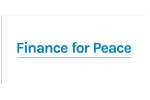 |
Finance for Peace Initiative | https://financeforpeace.org/ | Foundation | Peace Finance | Investors | Peace Finance Impact Framework (PFIF) | Finance for Peace (F4P) is an independent initiative that seeks systemic change in how private and public investment supports peace in the world’s developing and fragile contexts. It aims to create multi-stakeholder approaches that can co-develop the critical market frameworks, networks of political support, partnerships and knowledge required to scale what we call peace finance - investment that has an intentional and positive impact on peace. By doing so, it is possible to realise mutual benefits of reduced risks for investors and communities and achieve both bankable and peaceful outcomes. | The Peace Finance Impact Framework (PFIF) helps public and private investors plan, partner, report and ultimately realise peace impacts that reduce risks for investors and communities. It is complemented by the separately published Peace Finance Standard (PFS) that provides specific guidance for Peace Bond Standards and Peace Equity Standard, to label nascent debt and equity investment aligned to peace. |
| 4 |  |
German Federal Foreign Office | https://www.auswaertiges-amt.de/en/aussenpolitik/themen/krisenpraevention/-/231866 | Ministry | Peace Finance | Investors | Investing for Peace (I4P) Initiative | The German Federal Foreign Office (GFFO) supports projects and measures by German and international NGOs that seek to manage current conflicts, prevent potential conflicts and stabilise the situation following a conflict. | The German Federal Foreign Office (GFFO), in partnership with the UN Peacebuilding Support Office, is leading the Investing for Peace (I4P) Initiative that works with an interdisciplinary group of investment managers, development finance institutions (DFIs) and peacebuilding experts to explore concrete ways to increase peace-positive investments in conflict-affected and fragile contexts. |
| 5 | 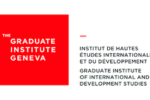 |
Graduate Institute of International and Development Studies | https://www.graduateinstitute.ch/ | Institution | International Relations | Investors | Publications and Research | Graduate Institute of International and Development Studies (The Graduate Institute, Geneva (IHEID is a higher education institution and a pioneer in the exploration of global issues. Through its core missions – academic research, teaching, expertise and forum activities – it produces and shares knowledge on international relations, development issues, global challenges and governance. | Publications include: Peace Supporting Investment Principles Defining a Framework for Companies and Investors Beyond ESG; Business and Human Rights: A global trend towards mandatory due diligence? |
| 6 |  |
Heartland Initiative | https://www.heartland-initiative.org/ | Non-Profit Organisation | Business and Human Rights | Investors | Rights Respecting Investment in CAHRA methodology | Heartland Initiative, Inc. is a nonprofit practice-based research organization that promotes the fundamental rights and freedoms of people in conflict-affected and high-risk areas. Heartland’s work responds to a growing need at the intersection of business and human rights, where public and private stakeholders understand that business activities can contribute to either the escalation or mitigation of conflicts and their attendant human rights violations. | Heartland Initiative has developed the Rights Respecting Investment in CAHRA methodology. Designed to assist investors in protecting the rights of vulnerable populations while simultaneously addressing the material risks faced by companies, Heartland’s methodology enables them to identify and assess the severity of a company’s risks based on its geographical, relational, and/or operational proximity to the violation, violator, and victim. |
| 7 |  |
International Alert | https://www.international-alert.org/ | NGO | Responsible Business Conflict Sensitivity |
Investors | Publications and Research | International Alert is one of the largest peacebuilding NGOs with projects in 21 countries and territories with activities in a further 26. It has a 35+ year history of supporting and working with local partners, engaging from the grassroots to policy level to solve the root causes of conflict. It is a leading voice on the Women Peace and Security agenda and gender-mainstreaming, as well as on conflict sensitivity in development and humanitarian work and in advocating conflict-sensitive management solutions for natural resources. The organisation has also been a pioneer in engaging the private sector in peacebuilding. | Publications include: Towards peace-positive investment: Bringing investors and fragile and conflict-affected states together, sustainably; Mobilising the Private Sector for Peace; Economic development and peace practice note series |
| 9 |  |
Investor Alliance for Human Rights | https://investorsforhumanrights.org/ | Initiative | Business and Human Rights | Investors | Investor Toolkit for Human Rights | The Investor Alliance for Human Rights is a collective action platform for responsible investment that is grounded in respect for people's fundamental rights. It is a membership-based, non-profit initiative focusing on the investor responsibility to respect human rights, corporate engagements that drive responsible business conduct, and standard-setting activities that push for robust business and human rights policies. Its membership is currently comprised of over 200 institutional investors, including asset management firms, trade union funds, public pension funds, foundations, endowments, faith-based organizations, and family funds. Its members currently represent a total of over US$12 trillion in assets under management and 19 countries. |
The Investor Toolkit for Human Rights provides practical guidance for institutional investors in applying the UN Guiding Principles throughout their risk management systems to assess and address risks to people involved with their business, with a primary focus on investment activities. In doing so, the Toolkit breaks down each step in this human rights risk management approach, providing tools and case studies along the way. All tools are provided in the ‘Toolkit Annex’ for ease of reference. |
| 10 |  |
One Earth Future Foundation | https://oneearthfuture.org/ | Non-Profit Foundation | Peace Finance | Investors | Shuraako Programme | One Earth Future Foundation (OEF) prevents armed conflict and promotes stability through creative and inclusive problem-solving. OEF is an incubator of innovative peacebuilding programs that designs, tests, and partners to scale programs that work hand-in-hand with those most affected by conflict to eliminate the root causes of war. | Shuraako, a flagship programme of OEF, facilitates investments into a variety of sectors across the Somali region through the The Nordic Horn of Africa Opportunities Fund (or “Nordic Fund”), which is uniquely designed to advance development effects while generating a positive return on capital. By adding risk capital to the Somali region, fostering entrepreneurship, and creating jobs, the Nordic Fund is supporting a responsible private sector, creating a sustainable business environment, and fostering prosperity and stability in the region. Shuraako’s approach is based on OEF’s model for creating sustainable peace through economic development, which emphasises facilitated investment, business development, and private-sector development. |
| 11 |  |
Pax | https://paxforpeace.nl/ | Independent Organisation | Business and Human Rights | Investors | Publications and Research | PAX is the largest peace organization in the Netherlands. PAX works to protect civilians against acts of war, to end armed violence and to build inclusive peace. It works in conflict areas worldwide, together with local partners to promote the right to a dignified life in a peaceful society. | Publications include: Funding Conflict: Heightened human rights due diligence in conflict-affected areas, with a case study on Lafarge and its investors; Conflict and Due Diligence Legislation; |
| 12 | 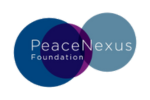 |
PeaceNexus | https://peacenexus.org/ | Foundation | Conflict Sensitivity | Investors | Publications and Research | PeaceNexus is a Swiss private foundation that aims to strengthen the capacities of and collaboration between organisations to increase their contribution to reducing violence and building peace. Based across Switzerland, West Africa, Central Asia, South East Asia and the Western Balkans, our team of 20 works with local partners who are well positioned to address specific conflict risks. It also supports international organisations that are active in fragile states and are well positioned to contribute to social cohesion and peacebuilding, by supporting local initiatives or by shaping national and international policy. |
PeaceNexus has developed a SDG 16 Business Framework Inspiring Transformational Governance. The Framework sets out the theory of transformational governance and how it is underpinned by the targets and tenets of SDG 16: peace, justice and strong institutions. Transformational governance is a principles-based philosophy, not a new legal concept that calls on businesses to be more accountable, ethical, inclusive and transparent as a driver to responsible conduct, enhanced ESG performance and strengthened public institutions, laws and systems. This means fostering a culture of integrity, fairness and inclusion beyond legal formality — asking not just what is legal but what is right. |
| 13 | 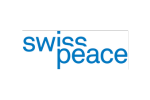 |
Swisspeace | https://www.swisspeace.ch/ | Research Institute | Peace Finance | Investors | Financing Peace Processes | Swisspeace is a practice and research institute dedicated to advancing effective peacebuilding. If focuses on building strong partnerships with local and international actors with a focus on reducing violence and promoting peace in contexts affected by conflicts. | The mediation team at swisspeace and the Germany-based International Security and Development Center (ISDC) jointly conducted a practice-oriented research project called ‘Financing Peace Processes.’ The project was designed to enhance knowledge and improve funding mechanisms for peace negotiations and mediation by generating pertinent information and offering practical guidance to actors involved in such processes. The research identified eight key issues through which funding can have enabling or disabling effects on peace negotiations and mediation. Based on these insights, it outlines strategies to overcome funding challenges and maximize related opportunities. |
| 14 | 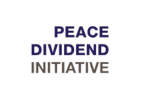 |
Peace Dividend Initiative | https://www.peacedividends.org/ | Not-for-profit Foundation | Peace Finance Conflict Sensitivity Do No Harm |
Investors | Peace-supporting investments | Headquartered in Geneva, the Peace Dividend Initiative (PDI) was conceived by the Centre for Humanitarian Dialogue in 2017-2018, further scoped and tested with support from the Swiss Federal Department for Foreign Affairs (FDFA) in 2019-2020, and launched as an independent Swiss Foundation in 2021. It aims to serve the entire peace sector in “harnessing market forces for peace”. PDI has connections with peacemakers, international organisations, governments, investors, and entrepreneurs, and bridges the worlds of private investment and peacemaking by working closely with a network of trusted peace mediation organisations. | PDI identifies, incubates, and catalyses opportunities for peace-supporting investment, seeking to address the root causes of conflict by investing long-term while relying on trusted relationships with field-based and global actors. Peace-supporting investments regularly monitor peace at local level and systematically run conflict analyses. PDI investments use blended finance and public-private partnerships moderated by accompaniment mechanisms that are informal in nature and ensure that investments do good, Do No Harm, and evolve rapidly when conflict dynamics change Between 2019 and 2022, PDI developed a prototype ‘+P’ peace finance impact framework that includes more than 25 metrics and more than 50 sub-indicators. The framework combines global framework principles such as the PRI and SDGs with contextual understanding, trustworthy data collection, verification mechanisms, and peace-focused criteria |
| 15 | 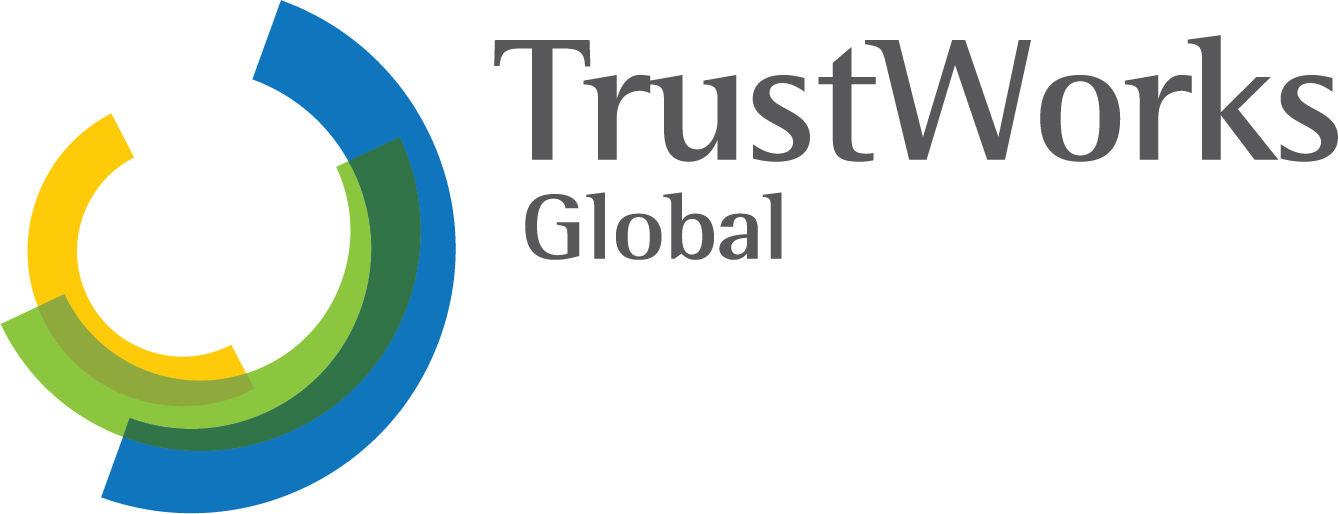 |
TrustWorks Global | https://trustworksglobal.com/ | Social Enterprise | Peace Finance Conflict Sensitivity Heightened Human Rights Due Diligence |
Investors Businesses |
Peace Finance | TrustWorks engages investors with portfolios, investments and/or funds in fragile and conflict-affected settings – including Development Financial Institutions (DFIs), impact and commercial/institutional investors – to provide them with the necessary knowledge, tools and skills to put in place the HQ-level policy processes and country- level investment frameworks and practices to ensure conflict-sensitive investments; we also assist investors with risk/crisis management and monitoring frameworks. TrustWorks supports companies to operate in and source from FCS with the necessary knowledge, skills and expertise to ensure heightened human rights due diligence and/or conflict-sensitive policies and practices in line with international norms, standards, and emerging regulations. Where possible and desirable, we enable companies to go beyond compliance with a view to maximising peace-positive impacts in line with company aspirations (including social impact objectives), branding and corporate DNA/values. |
TrustWorks has a strategic partnership with the Swiss-based asset management firm, de Pury Pictet Turrettini (PPT) to support their engagements with portfolio companies that have a high presence in fragile and conflict-affected settings (FCS) in the context of the Cadmos Peace European Engagement Fund. PPT believes that issues related to peace and stability can be effectively address by investors through direct and expertise-driven engagement; through their Buy & Care® investment philosophy they ensure that portfolio companies have access to the necessary expertise to enable them to be high performing companies with positive externalities. The partnership with TrustWorks reinforces PPT’s access to expertise on matters of peace and stability because TrustWorks is one of the few entities in the world specialised in supporting companies and investors to operate effectively and responsibly in fragile and conflict-affected settings. TrustWorks has also developed its own peace finance model for effective investments in FCS, which it leverages to support DFIs and relevant partners. At the heart of the model is the need for conflict-sensitivity as an integrated practice across all investments - irrespective of the type - in order to ensure investments at a minimum do not inadvertently exacerbate conflict dynamics and, where possible, actively contribute to peace and stability. In 2023, TrustWorks signed a strategic partnership with One Earth Future Foundation (OEF) to increase the operational capacities of OEF to enable conflict-sensitive and peace promoting SME facilities; OEF has $25 million of assets under management in conflict contexts. TrustWorks services include: support on developing relevant HQ-level policies and governance processes; country-level analyses and road maps (heightened human rights due diligence and conflict-sensitivity of operations and/or supply chains); FCS-readiness assessments; skills-building, process design and stakeholder management; and, crisis management and communications. Relevant TrustWorks publications include: ‘SME facilities in fragile and conflict-affected settings: Contributing to peace?’ and ‘Conditions for successful investments in fragile and conflict-affected settings’. |
| 24 | 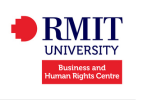 |
Business and Human Rights Centre (BRIGHT) at the RMIT University | https://www.rmit.edu.au/research/centres-collaborations/business-and-human-rights-centre | Institution | Business and Human Rights | Businesses | Publications and Research | BHRIGHT addresses the human rights impact of business through research, education, innovation and collaboration, and is an interdisciplinary centre located in RMIT’s College of Business and Law. The Peace and Conflict theme of BHRIGHT serves as a focal point for the Centre and University’s work to examine and analyse the various roles and impacts businesses have in situations of armed conflict and peace-building efforts around the world, especially in conflict-affected contexts. |
Publications include: Seven indicators of corporate best practice in international humanitarian law; Doing Responsible Business in Armed Conflict: Risks, Rights and Responsibilities; Don't Forget the Geneva Conventions: achieving responsible business conduct in conflict-affected areas through adherence to international humanitarian law" Courses: International Humanitarian Law for Business; War, Law, and Business |
| 25 | 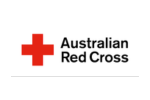 |
Australian Red Cross | https://www.redcross.org.au/ | Non-Profit Organisation | International Humanitarian Law Business and Human Rights |
Businesses | Publications and Research | The Australian Red Cross assists Australian organisations to understand IHL and embed it appropriately in their policies and operations. It engages with all Australian organisations with operations in conflict affected areas, and provides new resources to help businesses adopt and demonstrate best practice. | Publications include: Seven indicators of corporate best practice in international humanitarian law; Doing Responsible Business in Armed Conflict: Risks, Rights and Responsibilities; The Business of War: IHL and the corporate sector; Courses: International Humanitarian Law for Business; War, Law, and Business |
| 26 |  |
Business & Human Rights Resource Centre | https://www.business-humanrights.org/en/ | Non-Profit Organisation | Business and Human Rights | Businesses | News Publications and Research |
Business & Human Rights Resource Centre (BHRRC) is a non-profit organisation drawing attention to the human rights impacts (positive and negative) of over 5600 companies, operating all over the world. The BHRRC website is updated hourly with news and reports about business and human rights and always attempts to remain ‘fair and objective’ by representing all sides of debates and giving companies an opportunity to respond to allegations of misconduct before posting them. | Alongside its core work providing a platform for Human Rights advocates, the Resource Centre runs several focused programme areas and regularly releases briefings and reports. |
| 27 |  |
CDA Collaborative Learning Project | https://www.cdacollaborative.org/ | Non-Profit Organisation | Do No Harm Business and Human Rights |
Businesses | Publications and Research | Sitting at the intersection of applied research, global policy, and local practice, CDA develops strategies and programs that are locally-driven, grounded in a systemic understanding of the complexity of fragile and conflict-affected contexts, and based on evidence and context-specific theories of change. | CDA’s Dost Bardouille contributed to this UN Global Compact guidance document, Guidance on Responsible Business in Conflict Affected and High Risk Areas, which aims to assist companies in implementing responsible business practices in conflict-affected and high-risk areas consistent with the Global Compact’s Ten Principles. It was launched at the UN Global Compact Leaders Summit in New York City on June 24, 2010. CDA specifically authored the chapters “Local Stakeholder Engagement,” (page 20) and “Strategic Social Investment.” (page 24) |
| 28 | 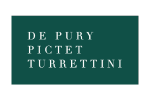 |
De Pury Pictet Turrettini | https://ppt.ch/en/ | Investment Fund | Peace Finance Positive Impact |
Businesses | Cadmos Peace European Engagement Fund | Swiss assets management firm de Pury Pictet Turrettini (PPT) was the first asset management firm to directly address the issue of peace and stability, when it partnered with the PeaceNexus Foundation to develop the Cadmos Peace Fund in 2018. In 2022, after merging the fund with the flagship Cadmos Peace European Engagement fund, PPT formed a strategic partnership with TrustWorks Global to provide expertise to portfolio companies on how to use a conflict sensitivity lens to operate responsibly in fragile and conflict-affected settings, and advance SDG 16. | In partnership with TrustWorks, PPT holds yearly engagements with every company in the Cadmos Peace European Engagement portfolio with the objective to raise the awareness of its portfolio companies on issues related to conflict and peace, and how companies can leverage their operations and supply chains to achieve and create positive impact on peace and stability. Its approach involves regular, constructive engagement with companies to identify where their operations and supply and value chains are at risk of inadvertently feeding into conflict dynamics and what opportunities exists for promoting peace and stability. |
| 29 |  |
Focusright | https://www.focusright.ch/ | Consultancy | Business and Human Rights | Businesses | Human Rights Due Diligence | Focusright makes human rights concrete for business and initiate change. It supports companies and investors in embedding human rights due diligence into their business practice – in a step-by-step approach. | Focusright has created a practical guide to support companies in the implementation of pragmatic and effective human rights due diligence processes in line with international standards. |
| 30 | 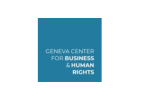 |
Geneva Center for Business and Human Rights | https://gcbhr.org/ | Institution | Business and Human Rights | Businesses | Publications and Research | The Geneva Center for Business and Human Rights (GCBHR) was founded in 2019 as the first business and human rights center at a business school in Europe. The GCBHR educates future business leaders and supports companies in developing business models that align profits and human rights principles. | Publications include: “Cobalt Mining in the Democratic Republic of the Congo: Addressing Root Causes of Human Rights Abuses; Sustainable Finance and Human Rights: How are financial institutions addressing human rights in their activities?; Looking back to move forward: two decades of advancing company guidance on how to operate in complex environments |
| 32 | 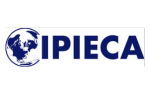 |
IPIECA | https://www.ipieca.org/ | Association | Business and Human Rights | Businesses | Publications and Research | Ipieca is the global oil and gas association dedicated to advancing environmental and social performance across the energy transition. It brings together members and stakeholders to lead in integrating sustainability by advancing climate action, environmental responsibility and social performance across oil, gas and renewables activities. Ipieca was founded at the request of the United Nations Environment Programme in 1974. Through its non-lobby and collaborative approach Ipieca remains the industry’s principal channel of engagement with the UN. |
Publications include: Human rights due diligence guidance for the oil and gas, and alternative energy industry; Guide to operating in areas of conflict for the oil and gas industry |
| 33 |  |
Overseas Development Institute (ODI) | https://odi.org/en/ | Think tank | International Relations | Businesses | Publications and Research | The Overseas Development Institute (ODI) is a leading independent think tank on international development and humanitarian issues. It focuses on policy and practice which leads to the reduction of poverty, the alleviation of suffering and the achievement of sustainable livelihoods in developing countries. | Publications include: MSME-led private sector development in contexts of conflict, fragility and displacement; |
| 34 |  |
Swedwatch | https://swedwatch.org/ | Non-Profit Organisation | Business and Human Rights | Businesses | Publications and Research | Swedwatch is an independent, non-profit research organisation striving to empower rights holders and to promote responsible business practices. Through research and dialogue, Swedwatch highlights the impacts on people and planet by unsustainable business operations, and builds bridges between stakeholders in order to affect change. | Publications include: Swedwatch calls for integration of business and human rights into peace and security frameworks; Updated OECD Guidelines places stronger demands on companies; Human rights and environmental impact of business overlooked in peacebuilding; Companies impact women's rights and social conflict in Liberia and Sierra Leone |
| 35 | 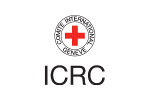 |
The International Committee of the Red Cross (ICRC) | https://www.icrc.org/en/who-we-are | Independent IO | International Humanitarian Law Business and Human Rights |
Businesses | Advocacy Publications & Research |
The International Committee of the Red Cross (ICRC) is an impartial, neutral and independent organization whose exclusively humanitarian mission is to protect the lives and dignity of victims of armed conflict and other situations of violence and to provide them with assistance. | The ICRC engages with the private sector on humanitarian issues, with the aim of ensuring compliance or clarifying the obligations that business actors have under international humanitarian law (IHL) and encouraging them to comply with the commitments they have undertaken under various international initiatives to respect IHL and human rights law. Publications include: Addressing Security and Human Rights Challenges in Complex Environments; Business and international Humanitarian Law: An introduction to the rights and obligations of business enterprises under International Humanitarian Law |
| 36 | 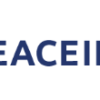 |
Peaceinvest | https://peaceinvest.net/ | Investment Firm | Peace Finance | Investors | Repurpusing initiatives Commercial Peace Bonds Outcome Peace Bonds |
Peaceinvest is a global investment firm based in Geneva, Switzerland, working to harness finance to build more inclusive economies and a more peaceful world. The company originates and arranges Peace Bonds across a number of thematic sectors that mobilize capital to create value for all stakeholders. Peaceinvest is revolutionizing the investment landscape by designing targeted, project and context-specific risk-reduction measures that improve the risk-adjusted returns on investments and their positive impact on communities and societies. |
Take Action
Opportunities for Investors
- Put in place policies and governance processes to reflect the need for heightened human rights due diligence and/or conflict-sensitivity for business activity in fragile and conflict-affected settings (noting that hHRDD and conflict-sensitivity are not the same).
- Ensure internal alignment, knowledge and understanding of whether the investor wishes to meet ‘minimum standards’ (particularly those related to hHRDD) or go beyond them (by applying conflict-sensitivity approaches); align human and financial resources accordingly.
- Undertake portfolio reviews to ascertain the level and scope of exposure to conflict risks and impacts across existing investments.
- Put in place company-wide frameworks to assist in decision-making processes related to new investments. The aim should not be to de-risk by discouraging investments in fragile and conflict-affected settings, but to de-risk by ensuring that responsible, conflict-sensitive processes are in place in such contexts.
- Prior to new investments or in the context of ongoing investments, adopt a proactive investee engagement approach to raise awareness and understanding of conflict-related risks and peace-related opportunities across the portfolio.
- Put in place a monitoring system to proactively anticipate and/address conflict-related controversies in the portfolio, and/or to be able to measure progress in minimizing negative and maximising positive impacts.
- Develop accountability/assurance mechanisms for new and, when possible, ongoing investments that ensure that investments are embedding conflict sensitive policies and practises, monitoring those activities, reporting on them accordingly, and identifying options to mitigate negative impacts and risks.
Opportunities for Companies
- Distinguish between operations and supply chains in FCS and non-FCS.
- Ensure heightened human rights due diligence and/or conflict-sensitivity is reflected in relevant policy frameworks and governance processes, with appropriately aligned internal capacities and resources.
- Conduct heightened human rights due diligence and/or conflict-sensitivity analyses and put in place appropriate road maps/strategies in those contexts where the company exposure to conflict risks is significant.
- Put in place appropriate monitoring systems.
- Ensure staff have appropriate knowledge and capacities to operate and/or source responsibly in FCS through tailored training, mentoring and accompaniment programmes.
Join SFG and our work on Peace Finance
SFG aims to put key impact themes “on the map” for investors and to give them the tools they need to take action. This is part of our strategy to ensure that the field of sustainable finance evolves and considers a variety of sustainability issues, not simply environmental dimensions.
This Hub provides a consolidation of the latest resources and thinking on peace finance. In the coming years, we plan to be an active player on peace finance by translating resources into tools and information useful to our members, bringing the finance community’s perspective to Geneva’s peace finance ecosystem, and engaging in collaborative research.
If you want to get involved in this work, please email for more information and to discuss opportunities.
- WHY PEACE?
-
Why Peace Finance?
- The number of civil wars has almost tripled over the course of the past decade, with a six-fold increase in battle-related deaths since 2011. The OECD estimates that 1.9 billion people now live in fragile and conflict-affected settings (FCS), amounting to 24 per cent of the global population. In 2022, the global economic impact of violence was estimated to be $17.5 trillion, equivalent to 12,9 per cent of the global GDP, or 2,200$ per person. It is time to recognise that conflict, much like climate change, is a defining feature of modern times, which will require concerted efforts to surmount.
- This means that most globally diversified investment portfolios are highly exposed to conflict risks, yet this fact is often invisible to investors. This is because most exposure to FCS is indirect and through the supply chains of large, multinational corporations. The raw materials needed for food production, digitalisation, the energy transition and various consumer goods are often sourced from FCS. Such raw materials include copper, cobalt, tin, tantalum, tungsten, rare earth metals, gold, coffee, cocoa, cotton, leather, etc. This trend is only set to increase as the world transitions to a more sustainable future.
- Due to the systemic nature of conflict risk in global supply chains, it is nearly impossible and often counter-productive for investors to avoid exposure to FCS altogether. Rather, the solution is to become more sophisticated when it comes to identifying and managing conflict risks. This means first recognising that when companies operate in FCS their presence and activities both shape the context and are influenced by the context (i.e. a two-way relationship). Therefore, companies insensitive to conflict will generate, sustain, or drive conflict; directly or indirectly. Whether it be through their operations or capital expenditure decisions, corporates can contribute to peace and stability, or to violence and conflict– there is no such thing as a ‘neutral’ investment.
-
However, a peace lens is rarely integrated into company due diligence, ESG analysis, engagement strategies or impact frameworks of asset managers. Moreover, the scarcity of information and data on this important topic can lead investors to underestimate the impact of conflict and instability on their portfolios, leading to misallocation and mispricing of underlying assets.
-
The first step is to understand where the exposure lies and to prioritise minimising the negative impacts of investments on conflict. More forward-looking investors, or those seeking to have a positive social impact may then also seek to identify opportunities for investors to encourage investees to contribute to peace.
- THE CASE FOR PEACE FINANCE
-
What is Peace Finance?[i]
The missing peace in sustainable finance
Peace finance is an approach to investing that accounts for the risks and impacts associated with investments in fragile and conflict-affected settings (FCS). Peace finance recognises that conflict and instability are fundamental realities for 80% of the global poor with significant repercussions for global stability, peace and prosperity.
It is widely accepted that commercial activities in these regions can exacerbate conflict and instability or, conversely, mitigate them. Investments in FCS expose investors to a range of risks – including reputational, legal, and regulatory risks as well as the risk that conflict disrupts business activities. In a peace finance approach investors prioritise minimising the negative impacts of their investees; there may also be opportunities for investors to encourage investments to identify avenues to contribute to peace.
More Detail
Most asset classes in developed or emerging market portfolios are highly exposed to conflict and instability, either directly or indirectly by investing in multinational companies which have operations or value chains in FCS. Whether an investee company is extracting oil, gas or rare earth metals, or sourcing cotton, leather coffee or cacao, its operations and/or supply chains are likely highly exposed to conflict risk.
Moreover, two of the most strategic global transformations – the energy transition and digitalization – rely on critical raw materials (copper, cobalt, tin, tantalum, tungsten, gold, etc.), which are sourced from a narrow group of FCS. While investors are increasingly active in climate finance, the energy transition is indeed fraught with conflict risk. ‘Clean power’ – in the form of solar, hydro and wind – requires securing access to land and natural resources, which may be implicated in conflict.[ii]
The number of civil wars has almost tripled over the course of the past decade, with a six-fold increase in battle-related deaths since 2011.[iii] The OECD estimates that 1.9 billion people now live in FCS, amounting to 24 per cent of the global population.[iv] In 2022, the global economic impact of violence was estimated to be $17.5 trillion, equivalent to 12,9 per cent of the global GDP, or 2,200$ per person.[v]
Risks
Financial institutions are insufficiently prepared to address conflict-related risks
Investors underestimate the impact of conflict and instability on their portfolios, leading to misallocation and mispricing of underlying assets. Investors need mechanisms and processes to analyse the relative risk posed by the context in relation to the cost-benefit of the venture.
Most investors manage conflict through ‘exclusionary criteria’, particularly related to oil and gas, weapons, etc. or countries on the list of ‘Sanctioned Countries and Territories.’ This overlooks the extent to which risk exposure crosses sectors and value chains. Investors also tend to underestimate their ability to influence the conduct of the companies they invest in with regards to their conflict impacts. Misallocation is enhanced by a weak understanding of “conflict risks” and their impact on portfolios.
“Conflict risks” include a range of potential impacts that arise from business activities that may create, drive, sustain, or intensify conflict in a range of ways (as illustrated in the table below). FCS are often characterised by weak state capacity and regulatory frameworks, high levels of corruption, widespread human rights violations, sustained conflict and violence, and political instability. It is well established that when companies operate in FCS, their presence and activities interact with the context to shape the impacts that a company has on its stakeholders and on the operating context itself. While companies may deliberately position themselves as neutral actors with respect to conflict and violence, their impacts are never neutral with respect to conflict.
Conflict risks thus create ‘double materiality’: in addition to the reputational, legal, financial, security and human rights risks that conflict contexts pose to companies, companies also impact upon conflict – and vice versa. Irrespective of the company’s intentions, a company that is insensitive to the dynamics of conflict and fragility may ultimately – even if inadvertently – generate, sustain, or drive conflict, either directly or indirectly. Therefore, investors in almost any sector or industry may be exposed to these risks as well.
There are important legal and regulatory risks to take into account. In recent years, there has been an increasing recognition that human rights-based approaches alone are insufficient to deal with the scale and nature of risks in these contexts. The policy and regulatory environment is changing to reflect this emerging consensus, raising the bar for companies and investors alike; two key illustrative examples are below:
- The EU Corporate Sustainability Due Diligence Directive:[vi] The current draft of the EU-CSDDD includes language that would make it mandatory for companies to “undertake heightened, conflict sensitive due diligence…in conflict-affected or high-risk areas.”[vii]
- In July 2023, the UN Working Group on Business and Human Rights strongly recommended that the EU-CSDDD “expressly includes the entire financial sector within its scope without developing a special regime for that sector’s human rights due diligence obligations.”[viii]
Managing risks and leveraging opportunities
Investors can use their leverage to encourage business practices that minimise impacts that can intensify conflict and instability
Peace finance as an approach is grounded in a set of internationally-recognised standards of conduct, best practices, normative frameworks, law and soft-law and regulations. The below six elements of the peace finance approach apply in different ways to different companies operating in different industries and circumstances. It is not a “check-list” to be applied in the same way in all cases, but rather presents core elements that need to be tailored to suit the investment in question, and then reflected in core policies, practices, monitoring and accountability mechanisms of the investor and the investee:
- International Humanitarian Law (IHL): IHL obligates companies to avoid providing material support, such as revenues, to illegal armed groups in jurisdictions where conflict exists as a matter of law. IHL also covers complicity in war crimes and atrocities, among other things.
- Responsible Business Conduct: The OECD’s Due Diligence Guidance for Responsible Business Conduct and Guidelines for Multinational Enterprises include responsible sourcing, particularly of minerals and metals that may be tied to conflict.
- The UN Guiding Principles on Business and Human Rights (UNGPs): The UNGPs is the pre-eminent international standard defining companies’ responsibilities vis-à-vis human rights. The UNGPs suggests that since the risk of being involved with gross abuses of human rights in conflict-affected areas is heightened, approaches to managing these risks in these areas must also be heightened.
- Heightened human rights due diligence (hHRDD): This entails identifying and mitigating the impact of business activities on both human rights, and on the conflict itself. Heightened conflict-sensitive due diligence is referred to in the context of the emerging EU CSDDD regulations (see above).
- Relevant national and international legislation: In response to the rapidly changing international policy environment, many national governments have also developed legislation on issues of relevance to the peace finance space. For example, there is the Swiss Supply Chain Law, the French Duty of Vigilance, the German Due diligence in Supply Chains Act, to name only a few. The EU-CSDDD will also be pivotal here.
- Conflict-sensitivity: Refers to an approach to addressing the ways in which a company’s activities (operations, supply, value chains) impact upon conflict. Conflict sensitive business practices necessitate companies to analyze the context in which they are operating by identifying drivers of conflict and the ways in which the company activities interact with those dynamics. Through this analysis companies can identify how they can adapt their business activities to minimize the negative impacts on conflict and fragility, and maximise positive impacts on the context, including on peace and stability.
The highest priority for peace finance is to encourage investors to use their leverage vis-a-vis investee companies to encourage business practices that minimise impacts that intensify conflict and instability. This approach aligns with investor obligations to: do no significant harm through their investments; disclose Principle Adverse Impacts (PAI); and, to set acceptable tolerances against specific indicators to mitigate PAI.
In addition, there may also be some cases in which companies have opportunities to operate or source in ways that contribute to peace and stability, and investors can encourage them to do so. From the above list, conflict-sensitivity is the only approach that can foster positive impacts on conflict.
We can draw parallels between peace finance and “climate finance” and learn from the approach financial institutions have taken to climate. Broadly speaking, the priority amongst investors is not to finance the climate per se, but to finance efforts aimed at reducing emissions and reducing the vulnerability of human and ecological systems to negative climate change impacts; where possible such efforts are also designed to increase resilience. Similarly, the priority of peace finance is not to turn financial actors into “peacebuilders”, but to engage them in the vital work of reducing negative impacts on conflict, violence and instability, and where possible exploring opportunities to contribute to peace through their investments.
Impact
The Peace Finance imperative is both pressing, urgent and timely
The war in Ukraine has demonstrated that market volatility generated by conflict has an impact on investment portfolios irrespective of whether they are invested in Ukraine or Russia. Moreover, the worst forms of human rights abuses happen in areas affected by conflict, demonstrating that peace finance is a vital component of any sustainable finance approach.
And yet, “peace finance” is rarely integrated into company due diligence, ESG analysis, engagement strategies or impact frameworks of asset managers nor as part of the obligations required by the majority of development finance institutions. It is time to recognise that conflict, much like climate change, is a defining feature of modern times, which will require concerted effort to surmount.
Indeed, with global conflict on the rise and a rapidly changing policy environment, the Peace Finance imperative is both pressing, urgent and timely. Investors have a clear interest in peace and a critical role to play in managing conflict risks.
Please feel free to send any questions about peace finance and responsible business to or to TrustWorks at .
References
[i] The section of the SFG website on peace finance was produced by TrustWorks Global 2023 ©
[ii] Ateyo, Priscilla. ‘Fuelling conflict: The impact of the green energy transition and peace and security.’ International alert. September 2022. (link)
[iii] Von Einsiedel, Sebastian; with, Bosetti, Louise; Cockayne, James; Salih, Cale; Wan, Wilfred, ‘Civil war trends and the changing nature of armed conflict, United Nations University, Occasional Paper 10, March 2017.
[v] Institute for Economics & Peace. Global Peace Index 2023: Measuring Peace in a Complex World, Sydney, June 2023. p. 5. (link)
[vi] For more information see the European Commission website (link)
[vii] European Parliament, ‘Amendments* adopted by the European Parliament on 1 June 2023 on the proposal for a directive of the European Parliament and of the Council on Corporate Sustainability Due Diligence and amending Directive (EU) 2019/1937 (COM(2022)0071 – C9-0050/2022 – 2022/0051(COD))1,’ 2023, Amendment 37.
[viii] UN Working Group on Business and Human Rights. ‘Financial Sector and the European Union Corporate Sustainability Due Diligence Directive.’ Statement. 12 July 2023. (link)
- TOOLS & GUIDANCE
-
Tools & Guidance
wdt_ID Resource Name Author(s) Type Audience Link Description 1 ‘+P’ peace finance impact framework Peace Dividend Initiative Framework Investors https://www.peacedividends.org/charting-a-course-for-peace-impact-investing/ Between 2019 and 2022, PDI developed a prototype ‘+P’ peace finance impact framework that includes more than 25 metrics and more than 50 sub-indicators. The framework combines global framework principles such as the PRI and SDGs with contextual understanding, trustworthy data collection, verification mechanisms, and peace-focused criteria. PDI's '+P' impact framework assumes that an investment’s contribution to peace can be assessed by examining three core questions:
1. Does the investment meet a ‘quality for peace’ standard in its analysis, design and capability, and does it include close accompaniment by a reputable peacemaking or peace-building organisation?
2. Does the investment pursue a sound peace-supporting strategy, and adapt it in a timely way to maximise the likelihood of peace-supporting results?
3. Does the investment deliver results that are peace-supporting?2 Conditions for successful investments in fragile and conflict-affected states TrustWorks Global in partnership with NIRAS Study Investors https://www.fmo.nl/fragile-states This report seeks to distil the learnings and rich insights from the extensive research undertaken for FMO and to make them available to the broader community of development financial institutions, multi-lateral development banks and impact investors. The purpose of this report is to then use these findings to stimulate much needed discussion on how to foster more transformative development and peacerelated impacts on the part of DFIs in FCS. The report is structured around five questions that FMO considers fundamental for the development of its own fragility strategy in FCS. The answers to these questions are relevant to all investors seeking to increase their footprint in FCS: • What is ‘fragility’ and why does it matter? • How relevant is the country context when investing in FCS? • Should the investor approach be tailored to FCS? • How do financial instruments and tools shape FCS investments? • What are the most important non-financial tools that should be used in FCS? • Based on these findings, the report then outlines minimum standards, options and recommendations for DFIs operating in FCS. This independent study was commissioned by the Dutch Entrepreneurial Development Bank (FMO) in 2021 and led by Swiss-based TrustWorks Global (TrustWorks) in partnership with NIRAS. 3 Investor Toolkit on Human Rights & Armed Conflict Responsible Investment Association Australasia’s (RIAA) and the Human Rights Working Group (armed conflict subgroup) Toolkit Investors https://responsibleinvestment.org/wp-content/uploads/2023/05/Investor-Toolkit-on-Human-Rights-and-Armed-Conflict.pdf This toolkit includes detailed guidance for investors to identify where portfolio companies may be operating in a conflictaffected context, and how to identify actual and potential adverse human rights and IHL impacts. The toolkit then provides detailed guidance on how investors can engage with companies on these issues. 4 Peace Finance TrustWorks Global Framework Investors https://peacefinance.trustworksglobal.com/ The peace finance model for effective investments in FCS developed by TrustWorks is useful for any DFI that wishes to make more strategic investments in FCS. The model introduces two dimensions to consider when deciding on the type of investment in FCS: Peace and conflict impacts; and Development impact. This intersection between the two dimensions leads to four types of investments strategies: Bold Developer; Opportunity Driven Investor; Country Partner; and Engaged Peacemaker, which has each a different approach to the six investment modalities that can be deployed and adapted to enhance the ability to meet these objectives. At the heart of the model is the need for conflict-sensitivity as an integrated practice across ALL investments - irrespective of the type - in order to ensure investments at a minimum do not inadvertently exacerbate conflict dynamics and, where possible, actively contribute to peace and stability. 5 Peace Finance Impact Framework Finance for Peace Framework Investors https://financeforpeace.org/resources/peace-finance-impact-framework-v1/ The Peace Finance Impact Framework (PFIF) provides a benchmark for defining peace impact for public and private investors. It describes a proposed alignment process for investors to plan, implement, measure, and verify conflict sensitive investment strategies while building greater trust and buy-in through more inclusive investment approaches. If adopted, the PFIF can revolutionize how finance supports development and peacebuilding in emerging markets. 6 Peace Supporting Investment Principles Defining a Framework for Companies and Investors Beyond ESG Geneva Graduate Institute of International and Development Studies Report Investors https://www.graduateinstitute.ch/sites/internet/files/2023-03/ARP_Peace%20Dividend%20Initiative_Final%20Report%20-%20investment4peace%20ARP2022.pdf This report explores the potential interlinkage between ESG and other investment frameworks and peace by analysing which of the formers' indicators can be used to assess peace-positive impacts of businesses in conflict-affected areas. However, little is known about concrete business activities that are peace-positive and even less about how to quantify and measure their impact. The report contributes to this underexplored field by addressing two current gaps necessary when considering how to leverage ESG investment frameworks for peace. Namely, how the private sector can support peace and how indicators found in the ESG can be used to capture this support for peace. 7 Shifting the power balance: Effective Options for Financing Local Peacebuilding The Global Partnership for the Prevention of Armed Conflict (GPPAC) and Radical Flexibility Fund (RFF) with support from the Knowledge Platform Security & Rule of Law (KPSRL), Report Investors https://gppac.net/files/2022-04/GPPAC%20Report%20...Financing%20Local%20Peacebuilding_V2-1.pdf This paper is primarily written for bilateral donor governments. It provides concrete options to change the way donors distribute their financial support to peacebuilding with the aim of shifting power to local peacebuilders. To come to a substantial power shift, a system change is required. Such change can only happen if there is a leadership commitment to reform the policy, legal and regulatory frameworks within which policy officers and program managers operate. In the short-term, however, donors can take immediate steps to initiate change at the programming level. 8 SME Facilities in Fragile and Conflict-affected Settings: Contributing to peace? TrustWorks Global Study Investors https://trustworksglobal.com/publication/sme-facilities-in-fragile-and-conflict-affected-settings-contributing-to-peace/ This independent study led by Trustworks Global was commissioned by the Finance for Peace initiative in 2022 in the context of their broader work on the Peace Finance Impact Framework (PFIF). Entitled, ‘SME Facilities in Fragile and Conflict-affected Settings: Contributing to Peace?’, this study is motivated by a shared awareness of the increasing interest on the part of investors (development partners, impact and commercial investors) in supporting Small and Medium- Sized enterprises (SMEs) as a tool to foster both development and stability in frontier and emerging markets, understood by peace and conflict actors as Fragile and Conflict-affected Settings (FCS). 9 The Blue Peace initiative investment framework Blue Peace Framework Investors https://reliefweb.int/report/world/blue-peace-prevents-conflicts-and-contributes-greater-stability Blue Peace brings together key decision-makers and government representatives to discuss and negotiate the use of shared water. The long-term objective is for countries to enter into agreements ensuring access to and the sustainable preservation of transboundary water resources. A further aim is to help countries resolve conflicts of interest over water peacefully and assist them in undertaking the necessary preliminary work. Thorough research needs to be carried out before parties enter into negotiations on water resources. Staff and organisations with the necessary expertise are also needed to draw up and implement agreements. Blue Peace helps countries build capacity in these areas. 10 The Buy & Care® approach de Pury Pictet Turrettini Investment Approach Investors https://ppt.ch/en/fund/cadmos-european-engagement-fund/ The Buy & Care® approach involves regular, constructive engagement with companies to identify where their operations and supply and value chains are at risk of inadvertently feeding into conflict dynamics and what opportunities exists for promoting peace and stability. In partnership with TrustWorks, PPT’s commits to having yearly engagements with every company in the Cadmos Peace European Engagement portfolio with the objective to raise the awareness of its portfolio companies on issues related to conflict and peace, and how companies can leverage their operations and supply chains to achieve and create positive impact on peace and stability. 11 Guidance on Responsible Business in Conflict-Affected and High-Risk Areas: A Resource for Companies and Investors UN Global Compact - PRI Guidance Note Investors,Businesses https://d306pr3pise04h.cloudfront.net/docs/issues_doc%2FPeace_and_Business%2FGuidance_RB.pdf “Guidance on Responsible Business in Conflict-Affected and High-risk Areas: A Resource for Companies and Investors” aims to assist companies in implementing responsible business practices in conflict-affected and high-risk areas consistent with the Global Compact Ten Principles. It seeks to provide a common reference point for constructive dialogue between companies and investors on what constitutes responsible business practices in difficult operating environments, though it does not provide guidance on investment practices of financial institutions. This voluntary guidance aims to complement applicable national and international laws by promoting international good practice. It does not presume to replace the private sector’s legal rights and duties to their home and host country governments. Voluntary approaches cannot be a substitute for government action, but they can reinforce the positive impacts of investment in conflict-affected and high-risk areas. 12 The Human Security and Business Partnership (HSBP) Framework LSE Ideas and the United Nations Trust Fund for Human Security Framework Investors,Businesses https://www.lse.ac.uk/ideas/publications/reports/human-security-business-partnership-framework# The Human Security Business Partnership (HSBP) Framework assists companies and investors to partner with governments, the UN system, and local stakeholders to achieve the SDGs. The model was developed by LSE IDEAS and aligns commercial goals with the SDGs and other normative frameworks and standards that are relevant. The framework has three pillars: principles, processes and tools. The pillars interconnect and define the ethos of a new type of cooperation between the private sector and local actors. 26 IFC Performance Standards on Environmental and Social Sustainability IFC Standard Businesses https://www.ifc.org/en/insights-reports/2012/publications-handbook-pps IFC's Sustainability Framework articulates the Corporation's strategic commitment to sustainable development, and is an integral part of IFC's approach to risk management. The Sustainability Framework comprises IFC's Policy and Performance Standards on Environmental and Social Sustainability, and IFC's Access to Information Policy. The Performance Standards are directed towards clients, providing guidance on how to identify risks and impacts, and are designed to help avoid, mitigate, and manage risks and impacts as a way of doing business in a sustainable way, including stakeholder engagement and disclosure obligations of the client in relation to project-level activities. Together, the eight Performance Standards establish standards that the client is to meet throughout the life of an investment by IFC. 27 OECD Guidelines for Multinational Enterprises on Responsible Business Conduct OECD Guidance Note Businesses https://www.oecd-ilibrary.org/finance-and-investment/oecd-guidelines-for-multinational-enterprises-on-responsible-business-conduct_81f92357-en The OECD Guidelines for Multinational Enterprises on Responsible Business Conduct are recommendations addressed by governments to multinational enterprises. They aim to encourage positive contributions enterprises can make to economic, environmental and social progress, and to minimise adverse impacts on matters covered by the Guidelines that may be associated with an enterprise’s operations, products and services. The Guidelines cover all key areas of business responsibility, including human rights, labour rights, environment, bribery, consumer interests, disclosure, science and technology, competition, and taxation. The 2023 edition of the Guidelines provides updated recommendations for responsible business conduct across key areas, such as climate change, biodiversity, technology, business integrity and supply chain due diligence, as well as updated implementation procedures for the National Contact Points for Responsible Business Conduct. 28 OECD Risk Awareness Tool for Multinational Enterprises in Weak Governance Zones OECD Toolkit Businesses https://www.oecd.org/daf/inv/corporateresponsibility/36885821.pdf The OECD Risk Awareness Tool for Multinational Enterprises in Weak Governance Zones aims to help companies that invest in countries where governments are unwilling or unable to assume their responsibilities. It addresses risks and ethical dilemmas that companies are likely to face in such weak governance zones, including obeying the law and observing international instruments, heightened care in managing investments, knowing business partners and clients and dealing with public sector officials, and speaking out about wrongdoing. 29 UN Guiding Principles Reporting Framework Shift and Mazars Framework Businesses https://www.ungpreporting.org/about-us/why-reporting-matters/#Investors The UNGP Reporting Framework is a short series of smart questions to which any company should have answers, both to know whether it is doing business with respect for human rights, and to show others the progress it is making. The Reporting Framework is supported by two kinds of guidance: implementation guidance for companies that are reporting, and assurance guidance for internal auditors and external assurance providers. 30 Addressing Security and Human Rights Challenges in Complex Environments Toolkit the Geneva Centre for Security Sector Governance and the International Committee of the Red Cross Toolkit Businesses https://www.securityhumanrightshub.org/ The Toolkit is for any company facing security and human rights challenges in complex environments. In addition to company security managers, operational field staff, and sustainability and compliance officers, the Toolkit can also support the work of governments, international organisations, civil society and investors committed to promoting responsible business conduct. 32 Business and Peace: It takes two to Tango Markus Mayer (International Alert), Ben Miller (CDA Collaborative Learning), Kathryn Nwajiaku-Dahou (Overseas Development Institute), with contribution from Johannes Schreuder (Peacenexus) Report Businesses https://reliefweb.int/report/world/business-and-peace-it-takes-two-tango The report aims to raise awareness of the opportunities and prospects, but also the risks and challenges associated with the nexus between business and peace. 33 Conflict Analysis Tool for Companies Voluntary Principles Initiative Toolkit Businesses https://www.voluntaryprinciples.org/resource/voluntary-principles-initiative-conflict-analysis-tool-for-companies/ The tool is a resource that helps company staff to understand the dynamics of conflict in their area of operation, determine the company’s impacts on those dynamics, and generate options to mitigate negative impacts that might drive human rights and conflict risks to the company and its stakeholders. The tool consists of an overview document and two accompanying worksheets 34 Economic development and peace practice note series International Alert Practice Note Businesses https://www.international-alert.org/publications/economic-development-and-peace-practice-note-series/ This practice note series seeks to address the Design, Monitoring, Evaluation and Learning (DMEL) challenges for peace-conducive economic development interventions in FCAS. These are interventions that are conflict-sensitive and explicitly integrate a peace objective.
These practice notes are intended for project designers and implementers as well as policy-makers working in or on FCAS who wish to see economic development with peace impacts or who want to integrate economic elements into peacebuilding projects. They are not intended as a step-by-step ‘how-to-guide’ but as a tool to spark greater analysis and critical engagement, with the potential to develop more peace-conducive economic development in FCAS.
They consolidate key good practices – ‘what works well’ – based on observation of various economic development programmes in FCAS, analysing gaps and challenges from a peacebuilding perspective. The case studies and examples are taken from the Horn of Africa region, including Kenya, Somalia and Uganda.35 Financing Peacebuilding: The Role of Private-Sector Actors Dag Hammarskjold Foundation Report Businesses https://www.daghammarskjold.se/publication/financing-peacebuilding/ This paper argues for guidance on standards and best practices to ensure that private actors contribute positively to peace, rather than merely avoiding conflict or causing harm. 36 GRI Standards GRI Guidance Note Businesses https://www.globalreporting.org/media/cnsm1k5v/why-corporate-transparency-is-critical-during-conflict.pdf The GRI Standards represent global best practice for reporting publicly on a range of economic, environmental and social impacts. Sustainability reporting based on the Standards provides information about an organization’s positive or negative contributions to sustainable development. The GRI Standards is a modular system of interconnected standards. Three series of Standards support the reporting process: the GRI Universal Standards, which apply to all organizations; the GRI Sector Standards, applicable to specific sectors; and the GRI Topic Standards, each listing disclosures relevant to a particular topic. Using these Standards to determine what topics are material (relevant) helps organizations to achieve sustainable development. The GRI Standards also cover many topics relevant for companies in conflict-affected areas, such as procurement practices, anti-corruption, water and effluents, and local communities. They provide companies with a comprehensive overview of topics to consider across the three sustainability domains of the economy, environment and society, including human rights, and they offer clear disclosures aligned with what stakeholders want to know about those topics. 37 Heightened Human Rights Due Diligence for Business in Conflict-Affected Contexts: A Guide UNDP Guidance Note Businesses https://www.undp.org/publications/heightened-human-rights-due-diligence-business-conflict-affected-contexts-guide The guide offers guidance to businesses and other actors on how to meet their responsibilities to carry out a heightened version of human rights due diligence in conflict-affected areas. UNDP developed this guide with the UN Working Group on Business and Human Rights. 38 Human rights due diligence in conflict-affected settings: guidance for extractives industries International Alert Guidance Note Businesses https://www.international-alert.org/publications/human-rights-due-diligence-conflict-affected-settings/ Human rights due diligence in conflict-affected settings addresses the question of how companies can ensure respect for human rights in their operations without exacerbating or generating conflicts, by providing recommendations, considerations, case studies and tools to help companies integrate conflict sensitivity into the human rights due diligence process. This document provides a summary of the guidance. 39 OECD Due Diligence Guidance for Responsible Business Conduct OECD Guidance Note Businesses https://www.oecd.org/investment/due-diligence-guidance-for-responsible-business-conduct.htm The OECD Due Diligence Guidance for Responsible Business Conduct provides practical support to enterprises on the implementation of the OECD Guidelines for Multinational Enterprises by providing plain-language explanations of its due diligence recommendations and associated provisions. Implementing these recommendations can help enterprises avoid and address adverse impacts related to workers, human rights, the environment, bribery, consumers and corporate governance that may be associated with their operations, supply chains and other business relationships. The Guidance includes additional explanations, tips and illustrative examples of due diligence. 40 OECD Due Diligence Guidance for Responsible Supply Chains of Minerals from Conflict-affected and High-Risk Areas OECD Guidance Note Businesses http://mneguidelines.oecd.org/mining.htm The OECD Due Diligence Guidance provides detailed recommendations to help companies respect human rights and avoid contributing to conflict through their mineral purchasing decisions and practices. This Guidance is for use by any company potentially sourcing minerals or metals from conflict-affected and high-risk areas. The OECD Guidance is global in scope and applies to all mineral supply chains. 41 Organisational Peace and Conflict Capacity Assessment
(OPCCA)TrustWorks Global Assessment Tool Businesses TrustWorks’ Operational Peace & Conflict Capacity Assessment (OPCCA) was developed by its peace and conflict specialists who have extensive experience supporting companies and investors in FCS on the practical challenges they face in their operations, value chains and portfolios.
The OPCCA is aligned with major international standards and principles that obligate companies with respect to the management of their social and human rights impacts, such as: the IFC Performance Standards on Environmental and Social Responsibility; Heightened human rights due diligence for conflict-affected and post-conflict areas; and the OECD Guidelines on Responsible Business Conduct, etc.
The OPCCA assesses the effectiveness and suitability of a company’s frameworks, policies, processes, people, competencies, and management controls. It process yields detailed, actionable recommendations for adapting business processes and developing internal capacity, and it can be tailored to a company’s needs, ambitions, and appetite.42 The Voluntary Principles on Security and Human Rights Voluntary Principles Initiative Guidance Note Businesses https://www.voluntaryprinciples.org/resource/the-voluntary-principles-on-security-and-human-rights/ Established in 2000, the Voluntary Principles on Security and Human Rights are a set of principles designed to guide companies in maintaining the safety and security of their operations within an operating framework that encourages respect for human rights.
The Voluntary Principles on Security and Human Rights were created in 2000 when the governments of the United States and the United Kingdom, companies, and NGOs engaged in a dialogue about security and human rights. Although originally developed for the extractive and energy sector, the principles are implemented by a variety of industries.43 UN Guiding Principles for Business and Human Rights (UNGPs) UN Framework Businesses https://www.ohchr.org/sites/default/files/documents/publications/guidingprinciplesbusinesshr_en.pdf The UN Guiding Principles on Business and Human Rights are a set of guidelines for States and companies to prevent, address and remedy human rights abuses committed in business operations. They were proposed by UN Special Representative on business and human rights John Ruggie, and endorsed by the UN Human Rights Council in June 2011. In the same resolution, the UN Human Rights Council established the UN Working Group on business & human rights. 44 Voluntary Principles on Security and Human Rights — Implementation Guidance Tools Voluntary Principles Initiative Guidance Note Businesses https://www.voluntaryprinciples.org/resource/voluntary-principles-on-security-and-human-rights-implementation-guidance-tool/ The Implementation Guidance Tools are non-prescriptive and provide a range of different tools on which companies may draw, according to their individual needs and circumstances. While VPs participants have been closely involved in the development of the tools, they have not be formally approved by them, since it is designed as a guidance and is the result of co-operation between several organizations. While it has been designed with the extractive sector in mind, companies in other sectors may also find them a useful guide when operating in difficult environments. The tools serve as a helpful reference guide to any company seeking to ensure that its operations are undertaken in a manner that ensures respect for human rights and fundamental freedoms. 45 Investor ESG Guide on Private Security and Human Rights ICoCA Guidance Note Investors https://icoca.ch/wp-content/uploads/2023/10/ESG-Investor-Guide-on-Private-Security-and-Human-Rights.pdf This guide is designed to raise investor awareness about human rights risks and impacts connected to portfolio companies that procure the services of private security providers (PSPs). With better understanding, investors can make more informed decisions and act as catalysts for improved human rights performance. 46 ESG Rating Methodology GCBHR and ICoCA Guidance Note Businesses https://icoca.ch/wp-content/uploads/2023/09/ICoCA-ESG-Methodology.pdf This methodology has been developed to enable ESG rating agencies to factor in the risks
associated with private security contracting and,
to assess the nature and extent of the due diligence
conducted by the contracting company in identifying,
preventing and reducing those risks.47 Business and Human Rights in Challenging Contexts
Considerations for Remaining and ExitingOHCHR Guidance Note Businesses https://www.ohchr.org/sites/default/files/documents/issues/business/bhr-in-challenging-contexts.pdf This Guidance Note encourages approaches to businesses to decisions to remain in or exit from challenging operating contexts or business relationships.
It clarifies what is expected from business entreprises under the United Nations Guiding Principles to meet their responsibility to respect human rights when they find themselves in challenging contexts. The advice in this note is grounded in the prescriptions for robust and comprehensive human rights due diligence set
out in the UNGPs. It focuses in particular on corporate responsibilities under Pillar II (the corporate responsibility to
respect human rights) and Pillar III (access to remedy).
It is addressed to policy-makers seeking to accurately reflect
the UNGPs in relevant policies or regulatory requirements, to businesses faced with difficult choices and
circumstances, and to civil society seeking to hold businesses and governments accountable.
Business should not terminate their contracts at the first sight of human rights risks or harms that may be challenging to prevent or mitigate. However, businesses should proactively consider disengagement when they are unable to obtain and exercise sufficient leverage to prevent or mitigate adverse impacts in a business relationship. - RELEVANT ACTORS
-
Relevant Actors
wdt_ID Logo Organisation Name Link Type Theme Focus Work related to peace Description Examples 1 
EIRIS Conflict Risk Network https://eiriscrn.net/ Initiative Conflict Sensitivity Investors Research and engagement EIRIS Conflict Risk Network (EIRIS CRN), an EIRIS Foundation initiative, is a U.S.-based organization whose purpose is to help investors and companies ensure that they are not exacerbating conflict but actively taking steps to support peace and stability. EIRIS CRN is creating services to enable investors to identify companies investing or considering investments in conflict-affected areas and to help assess how these companies are managing the risks associated with ongoing conflict. The EIRIS CRN service provides both authoritative research and opportunities for engagement.
EIRIS CRN has completed two conflict risk reports on Yemen and South Sudan and is currently in the process of finalizing conflict risk reports on the Central African Republic, Donbas (Donetsk and Luhansk regions of Ukraine), Libya, and Syria.2 
Energy Peace Partners https://www.energypeacepartners.com/ Social Enterprise Renewable Energy
Peace FinanceInvestors Peace Renewable Energy Credit (P-REC) Energy Peace Partners is a social enterprise that leverages climate and finance solutions to promote peace in the world’s most fragile regions. It addresses the intersection of energy poverty, conflict risk and climate vulnerability to demonstrate the peace dividends of clean energy. Energy Peace Partners developed the Peace Renewable Energy Credit (P-REC) in order to unlock new renewable energy investment that extends the promise of the renewable energy revolution to the planet’s most vulnerable communities. At a time of accelerating renewable energy growth and corporate commitments to environmental and social goals, P-RECs connect voluntary renewable energy markets with parts of the world where a greener development path can have a transformative social impact.
An Energy Attribute Certificate (EAC) is an internationally-traded virtual commodity that represents 1 megawatt hour (MWh) of renewable energy generated. Governments, utilities, companies, and individuals purchase EACs in order to meet mandatory or voluntary sustainability goals, while EACs provide renewable energy developers an additional option for monetizing generation. P-RECs extend the USD 1 billion international market in EACs to fragile, energy poor countries. They provide a recognized market mechanism that allows developers to monetize renewable energy generated from new projects in target countries, where access to affordable finance remains a challenge. At the same time, P-RECs offer corporate buyers entry points to fund high impact projects.
P-RECs are issued under the International REC (I-REC) Standard, the dominant tracking system for international EACs, known as I-RECs. P-RECs are I-RECs with an impact label from Energy Peace Partners certifying the environmental and social benefits associated with qualifying projects in fragile settings. To date EPP has been authorized as the I-REC country issuer in the Democratic Republic of Congo, South Sudan, Somalia, Chad, Ethiopia and Haiti.3 
Finance for Peace Initiative https://financeforpeace.org/ Foundation Peace Finance Investors Peace Finance Impact Framework (PFIF) Finance for Peace (F4P) is an independent initiative that seeks systemic change in how private and public investment supports peace in the world’s developing and fragile contexts. It aims to create multi-stakeholder approaches that can co-develop the critical market frameworks, networks of political support, partnerships and knowledge required to scale what we call peace finance - investment that has an intentional and positive impact on peace. By doing so, it is possible to realise mutual benefits of reduced risks for investors and communities and achieve both bankable and peaceful outcomes. The Peace Finance Impact Framework (PFIF) helps public and private investors plan, partner, report and ultimately realise peace impacts that reduce risks for investors and communities. It is complemented by the separately published Peace Finance Standard (PFS) that provides specific guidance for Peace Bond Standards and Peace Equity Standard, to label nascent debt and equity investment aligned to peace. 4 
German Federal Foreign Office https://www.auswaertiges-amt.de/en/aussenpolitik/themen/krisenpraevention/-/231866 Ministry Peace Finance Investors Investing for Peace (I4P) Initiative The German Federal Foreign Office (GFFO) supports projects and measures by German and international NGOs that seek to manage current conflicts, prevent potential conflicts and stabilise the situation following a conflict. The German Federal Foreign Office (GFFO), in partnership with the UN Peacebuilding Support Office, is leading the Investing for Peace (I4P) Initiative that works with an interdisciplinary group of investment managers, development finance institutions (DFIs) and peacebuilding experts to explore concrete ways to increase peace-positive investments in conflict-affected and fragile contexts. 5 
Graduate Institute of International and Development Studies https://www.graduateinstitute.ch/ Institution International Relations Investors Publications and Research Graduate Institute of International and Development Studies (The Graduate Institute, Geneva (IHEID is a higher education institution and a pioneer in the exploration of global issues. Through its core missions – academic research, teaching, expertise and forum activities – it produces and shares knowledge on international relations, development issues, global challenges and governance. Publications include: Peace Supporting Investment Principles Defining a Framework for Companies and Investors Beyond ESG; Business and Human Rights: A global trend towards mandatory due diligence? 6 
Heartland Initiative https://www.heartland-initiative.org/ Non-Profit Organisation Business and Human Rights Investors Rights Respecting Investment in CAHRA methodology Heartland Initiative, Inc. is a nonprofit practice-based research organization that promotes the fundamental rights and freedoms of people in conflict-affected and high-risk areas. Heartland’s work responds to a growing need at the intersection of business and human rights, where public and private stakeholders understand that business activities can contribute to either the escalation or mitigation of conflicts and their attendant human rights violations. Heartland Initiative has developed the Rights Respecting Investment in CAHRA methodology. Designed to assist investors in protecting the rights of vulnerable populations while simultaneously addressing the material risks faced by companies, Heartland’s methodology enables them to identify and assess the severity of a company’s risks based on its geographical, relational, and/or operational proximity to the violation, violator, and victim. 7 
International Alert https://www.international-alert.org/ NGO Responsible Business
Conflict SensitivityInvestors Publications and Research International Alert is one of the largest peacebuilding NGOs with projects in 21 countries and territories with activities in a further 26. It has a 35+ year history of supporting and working with local partners, engaging from the grassroots to policy level to solve the root causes of conflict. It is a leading voice on the Women Peace and Security agenda and gender-mainstreaming, as well as on conflict sensitivity in development and humanitarian work and in advocating conflict-sensitive management solutions for natural resources. The organisation has also been a pioneer in engaging the private sector in peacebuilding. Publications include: Towards peace-positive investment: Bringing investors and fragile and conflict-affected states together, sustainably; Mobilising the Private Sector for Peace; Economic development and peace practice note series 9 
Investor Alliance for Human Rights https://investorsforhumanrights.org/ Initiative Business and Human Rights Investors Investor Toolkit for Human Rights The Investor Alliance for Human Rights is a collective action platform for responsible investment that is grounded in respect for people's fundamental rights. It is a membership-based, non-profit initiative focusing on the investor responsibility to respect human rights, corporate engagements that drive responsible business conduct, and standard-setting activities that push for robust business and human rights policies.
Its membership is currently comprised of over 200 institutional investors, including asset management firms, trade union funds, public pension funds, foundations, endowments, faith-based organizations, and family funds. Its members currently represent a total of over US$12 trillion in assets under management and 19 countries.The Investor Toolkit for Human Rights provides practical guidance for institutional investors in applying the UN Guiding Principles throughout their risk management systems to assess and address risks to people involved with their business, with a primary focus on investment activities. In doing so, the Toolkit breaks down each step in this human rights risk management approach, providing tools and case studies along the way. All tools are provided in the ‘Toolkit Annex’ for ease of reference. 10 
One Earth Future Foundation https://oneearthfuture.org/ Non-Profit Foundation Peace Finance Investors Shuraako Programme One Earth Future Foundation (OEF) prevents armed conflict and promotes stability through creative and inclusive problem-solving. OEF is an incubator of innovative peacebuilding programs that designs, tests, and partners to scale programs that work hand-in-hand with those most affected by conflict to eliminate the root causes of war. Shuraako, a flagship programme of OEF, facilitates investments into a variety of sectors across the Somali region through the The Nordic Horn of Africa Opportunities Fund (or “Nordic Fund”), which is uniquely designed to advance development effects while generating a positive return on capital. By adding risk capital to the Somali region, fostering entrepreneurship, and creating jobs, the Nordic Fund is supporting a responsible private sector, creating a sustainable business environment, and fostering prosperity and stability in the region. Shuraako’s approach is based on OEF’s model for creating sustainable peace through economic development, which emphasises facilitated investment, business development, and private-sector development. 11 
Pax https://paxforpeace.nl/ Independent Organisation Business and Human Rights Investors Publications and Research PAX is the largest peace organization in the Netherlands. PAX works to protect civilians against acts of war, to end armed violence and to build inclusive peace. It works in conflict areas worldwide, together with local partners to promote the right to a dignified life in a peaceful society. Publications include: Funding Conflict: Heightened human rights due diligence in conflict-affected areas, with a case study on Lafarge and its investors; Conflict and Due Diligence Legislation; 12 
PeaceNexus https://peacenexus.org/ Foundation Conflict Sensitivity Investors Publications and Research PeaceNexus is a Swiss private foundation that aims to strengthen the capacities of and collaboration between organisations to increase their contribution to reducing violence and building peace.
Based across Switzerland, West Africa, Central Asia, South East Asia and the Western Balkans, our team of 20 works with local partners who are well positioned to address specific conflict risks. It also supports international organisations that are active in fragile states and are well positioned to contribute to social cohesion and peacebuilding, by supporting local initiatives or by shaping national and international policy.PeaceNexus has developed a SDG 16 Business Framework Inspiring Transformational Governance. The Framework sets out the theory of transformational governance and how it is underpinned by the targets and tenets of SDG 16: peace, justice and strong institutions. Transformational governance is a principles-based philosophy, not a new legal concept that calls on businesses to be more accountable, ethical, inclusive and transparent as a driver to responsible conduct, enhanced ESG performance and strengthened public institutions, laws and systems. This means fostering a culture of integrity, fairness and inclusion beyond legal formality — asking not just what is legal but what is right. 13 
Swisspeace https://www.swisspeace.ch/ Research Institute Peace Finance Investors Financing Peace Processes Swisspeace is a practice and research institute dedicated to advancing effective peacebuilding. If focuses on building strong partnerships with local and international actors with a focus on reducing violence and promoting peace in contexts affected by conflicts. The mediation team at swisspeace and the Germany-based International Security and Development Center (ISDC) jointly conducted a practice-oriented research project called ‘Financing Peace Processes.’ The project was designed to enhance knowledge and improve funding mechanisms for peace negotiations and mediation by generating pertinent information and offering practical guidance to actors involved in such processes.
The research identified eight key issues through which funding can have enabling or disabling effects on peace negotiations and mediation. Based on these insights, it outlines strategies to overcome funding challenges and maximize related opportunities.14 
Peace Dividend Initiative https://www.peacedividends.org/ Not-for-profit Foundation Peace Finance
Conflict Sensitivity
Do No HarmInvestors Peace-supporting investments Headquartered in Geneva, the Peace Dividend Initiative (PDI) was conceived by the Centre for Humanitarian Dialogue in 2017-2018, further scoped and tested with support from the Swiss Federal Department for Foreign Affairs (FDFA) in 2019-2020, and launched as an independent Swiss Foundation in 2021. It aims to serve the entire peace sector in “harnessing market forces for peace”. PDI has connections with peacemakers, international organisations, governments, investors, and entrepreneurs, and bridges the worlds of private investment and peacemaking by working closely with a network of trusted peace mediation organisations. PDI identifies, incubates, and catalyses opportunities for peace-supporting investment, seeking to address the root causes of conflict by investing long-term while relying on trusted relationships with field-based and global actors. Peace-supporting investments regularly monitor peace at local level and systematically run conflict analyses. PDI investments use blended finance and public-private partnerships moderated by accompaniment mechanisms that are informal in nature and ensure that investments do good, Do No Harm, and evolve rapidly when conflict dynamics change
Between 2019 and 2022, PDI developed a prototype ‘+P’ peace finance impact framework that includes more than 25 metrics and more than 50 sub-indicators. The framework combines global framework principles such as the PRI and SDGs with contextual understanding, trustworthy data collection, verification mechanisms, and peace-focused criteria15 
TrustWorks Global https://trustworksglobal.com/ Social Enterprise Peace Finance
Conflict Sensitivity
Heightened Human Rights Due DiligenceInvestors
BusinessesPeace Finance TrustWorks engages investors with portfolios, investments and/or funds in fragile and conflict-affected settings – including Development Financial Institutions (DFIs), impact and commercial/institutional investors – to provide them with the necessary knowledge, tools and skills to put in place the HQ-level policy processes and country- level investment frameworks and practices to ensure conflict-sensitive investments; we also assist investors with risk/crisis management and monitoring frameworks.
TrustWorks supports companies to operate in and source from FCS with the necessary knowledge, skills and expertise to ensure heightened human rights due diligence and/or conflict-sensitive policies and practices in line with international norms, standards, and emerging regulations. Where possible and desirable, we enable companies to go beyond compliance with a view to maximising peace-positive impacts in line with company aspirations (including social impact objectives), branding and corporate DNA/values.TrustWorks has a strategic partnership with the Swiss-based asset management firm, de Pury Pictet Turrettini (PPT) to support their engagements with portfolio companies that have a high presence in fragile and conflict-affected settings (FCS) in the context of the Cadmos Peace European Engagement Fund. PPT believes that issues related to peace and stability can be effectively address by investors through direct and expertise-driven engagement; through their Buy & Care® investment philosophy they ensure that portfolio companies have access to the necessary expertise to enable them to be high performing companies with positive externalities. The partnership with TrustWorks reinforces PPT’s access to expertise on matters of peace and stability because TrustWorks is one of the few entities in the world specialised in supporting companies and investors to operate effectively and responsibly in fragile and conflict-affected settings.
TrustWorks has also developed its own peace finance model for effective investments in FCS, which it leverages to support DFIs and relevant partners. At the heart of the model is the need for conflict-sensitivity as an integrated practice across all investments - irrespective of the type - in order to ensure investments at a minimum do not inadvertently exacerbate conflict dynamics and, where possible, actively contribute to peace and stability. In 2023, TrustWorks signed a strategic partnership with One Earth Future Foundation (OEF) to increase the operational capacities of OEF to enable conflict-sensitive and peace promoting SME facilities; OEF has $25 million of assets under management in conflict contexts.
TrustWorks services include: support on developing relevant HQ-level policies and governance processes; country-level analyses and road maps (heightened human rights due diligence and conflict-sensitivity of operations and/or supply chains); FCS-readiness assessments; skills-building, process design and stakeholder management; and, crisis management and communications.
Relevant TrustWorks publications include: ‘SME facilities in fragile and conflict-affected settings: Contributing to peace?’ and ‘Conditions for successful investments in fragile and conflict-affected settings’.24 
Business and Human Rights Centre (BRIGHT) at the RMIT University https://www.rmit.edu.au/research/centres-collaborations/business-and-human-rights-centre Institution Business and Human Rights Businesses Publications and Research BHRIGHT addresses the human rights impact of business through research, education, innovation and collaboration, and is an interdisciplinary centre located in RMIT’s College of Business and Law.
The Peace and Conflict theme of BHRIGHT serves as a focal point for the Centre and University’s work to examine and analyse the various roles and impacts businesses have in situations of armed conflict and peace-building efforts around the world, especially in conflict-affected contexts.Publications include: Seven indicators of corporate best practice in international humanitarian law; Doing Responsible Business in Armed Conflict: Risks, Rights and Responsibilities; Don't Forget the Geneva Conventions: achieving responsible business conduct in conflict-affected areas through adherence to international humanitarian law"
Courses: International Humanitarian Law for Business; War, Law, and Business25 
Australian Red Cross https://www.redcross.org.au/ Non-Profit Organisation International Humanitarian Law
Business and Human RightsBusinesses Publications and Research The Australian Red Cross assists Australian organisations to understand IHL and embed it appropriately in their policies and operations. It engages with all Australian organisations with operations in conflict affected areas, and provides new resources to help businesses adopt and demonstrate best practice. Publications include: Seven indicators of corporate best practice in international humanitarian law; Doing Responsible Business in Armed Conflict: Risks, Rights and Responsibilities; The Business of War: IHL and the corporate sector;
Courses: International Humanitarian Law for Business; War, Law, and Business26 
Business & Human Rights Resource Centre https://www.business-humanrights.org/en/ Non-Profit Organisation Business and Human Rights Businesses News
Publications and ResearchBusiness & Human Rights Resource Centre (BHRRC) is a non-profit organisation drawing attention to the human rights impacts (positive and negative) of over 5600 companies, operating all over the world. The BHRRC website is updated hourly with news and reports about business and human rights and always attempts to remain ‘fair and objective’ by representing all sides of debates and giving companies an opportunity to respond to allegations of misconduct before posting them. Alongside its core work providing a platform for Human Rights advocates, the Resource Centre runs several focused programme areas and regularly releases briefings and reports. 27 
CDA Collaborative Learning Project https://www.cdacollaborative.org/ Non-Profit Organisation Do No Harm
Business and Human RightsBusinesses Publications and Research Sitting at the intersection of applied research, global policy, and local practice, CDA develops strategies and programs that are locally-driven, grounded in a systemic understanding of the complexity of fragile and conflict-affected contexts, and based on evidence and context-specific theories of change. CDA’s Dost Bardouille contributed to this UN Global Compact guidance document, Guidance on Responsible Business in Conflict Affected and High Risk Areas, which aims to assist companies in implementing responsible business practices in conflict-affected and high-risk areas consistent with the Global Compact’s Ten Principles.
It was launched at the UN Global Compact Leaders Summit in New York City on June 24, 2010. CDA specifically authored the chapters “Local Stakeholder Engagement,” (page 20) and “Strategic Social Investment.” (page 24)28 
De Pury Pictet Turrettini https://ppt.ch/en/ Investment Fund Peace Finance
Positive ImpactBusinesses Cadmos Peace European Engagement Fund Swiss assets management firm de Pury Pictet Turrettini (PPT) was the first asset management firm to directly address the issue of peace and stability, when it partnered with the PeaceNexus Foundation to develop the Cadmos Peace Fund in 2018. In 2022, after merging the fund with the flagship Cadmos Peace European Engagement fund, PPT formed a strategic partnership with TrustWorks Global to provide expertise to portfolio companies on how to use a conflict sensitivity lens to operate responsibly in fragile and conflict-affected settings, and advance SDG 16. In partnership with TrustWorks, PPT holds yearly engagements with every company in the Cadmos Peace European Engagement portfolio with the objective to raise the awareness of its portfolio companies on issues related to conflict and peace, and how companies can leverage their operations and supply chains to achieve and create positive impact on peace and stability. Its approach involves regular, constructive engagement with companies to identify where their operations and supply and value chains are at risk of inadvertently feeding into conflict dynamics and what opportunities exists for promoting peace and stability. 29 
Focusright https://www.focusright.ch/ Consultancy Business and Human Rights Businesses Human Rights Due Diligence Focusright makes human rights concrete for business and initiate change. It supports companies and investors in embedding human rights due diligence into their business practice – in a step-by-step approach. Focusright has created a practical guide to support companies in the implementation of pragmatic and effective human rights due diligence processes in line with international standards. 30 
Geneva Center for Business and Human Rights https://gcbhr.org/ Institution Business and Human Rights Businesses Publications and Research The Geneva Center for Business and Human Rights (GCBHR) was founded in 2019 as the first business and human rights center at a business school in Europe. The GCBHR educates future business leaders and supports companies in developing business models that align profits and human rights principles. Publications include: “Cobalt Mining in the Democratic Republic of the Congo: Addressing Root Causes of Human Rights Abuses; Sustainable Finance and Human Rights: How are financial institutions addressing human rights in their activities?; Looking back to move forward: two decades of advancing company guidance on how to operate in complex environments 32 
IPIECA https://www.ipieca.org/ Association Business and Human Rights Businesses Publications and Research Ipieca is the global oil and gas association dedicated to advancing environmental and social performance across the energy transition. It brings together members and stakeholders to lead in integrating sustainability by advancing climate action, environmental responsibility and social performance across oil, gas and renewables activities.
Ipieca was founded at the request of the United Nations Environment Programme in 1974. Through its non-lobby and collaborative approach Ipieca remains the industry’s principal channel of engagement with the UN.Publications include: Human rights due diligence guidance for the oil and gas, and alternative energy industry; Guide to operating in areas of conflict for the oil and gas industry 33 
Overseas Development Institute (ODI) https://odi.org/en/ Think tank International Relations Businesses Publications and Research The Overseas Development Institute (ODI) is a leading independent think tank on international development and humanitarian issues. It focuses on policy and practice which leads to the reduction of poverty, the alleviation of suffering and the achievement of sustainable livelihoods in developing countries. Publications include: MSME-led private sector development in contexts of conflict, fragility and displacement; 34 
Swedwatch https://swedwatch.org/ Non-Profit Organisation Business and Human Rights Businesses Publications and Research Swedwatch is an independent, non-profit research organisation striving to empower rights holders and to promote responsible business practices. Through research and dialogue, Swedwatch highlights the impacts on people and planet by unsustainable business operations, and builds bridges between stakeholders in order to affect change. Publications include: Swedwatch calls for integration of business and human rights into peace and security frameworks; Updated OECD Guidelines places stronger demands on companies; Human rights and environmental impact of business overlooked in peacebuilding; Companies impact women's rights and social conflict in Liberia and Sierra Leone 35 
The International Committee of the Red Cross (ICRC) https://www.icrc.org/en/who-we-are Independent IO International Humanitarian Law
Business and Human RightsBusinesses Advocacy
Publications & ResearchThe International Committee of the Red Cross (ICRC) is an impartial, neutral and independent organization whose exclusively humanitarian mission is to protect the lives and dignity of victims of armed conflict and other situations of violence and to provide them with assistance. The ICRC engages with the private sector on humanitarian issues, with the aim of ensuring compliance or clarifying the obligations that business actors have under international humanitarian law (IHL) and encouraging them to comply with the commitments they have undertaken under various international initiatives to respect IHL and human rights law.
Publications include: Addressing Security and Human Rights Challenges in Complex Environments; Business and international Humanitarian Law: An introduction to the rights and obligations of business enterprises under International Humanitarian Law36 
Peaceinvest https://peaceinvest.net/ Investment Firm Peace Finance Investors Repurpusing initiatives
Commercial Peace Bonds
Outcome Peace BondsPeaceinvest is a global investment firm based in Geneva, Switzerland, working to harness finance to build more inclusive economies and a more peaceful world. The company originates and arranges Peace Bonds across a number of thematic sectors that mobilize capital to create value for all stakeholders.
Peaceinvest is revolutionizing the investment landscape by designing targeted, project and context-specific risk-reduction measures that improve the risk-adjusted returns on investments and their positive impact on communities and societies. - TAKE ACTION
-
Take Action
Opportunities for Investors
- Put in place policies and governance processes to reflect the need for heightened human rights due diligence and/or conflict-sensitivity for business activity in fragile and conflict-affected settings (noting that hHRDD and conflict-sensitivity are not the same).
- Ensure internal alignment, knowledge and understanding of whether the investor wishes to meet ‘minimum standards’ (particularly those related to hHRDD) or go beyond them (by applying conflict-sensitivity approaches); align human and financial resources accordingly.
- Undertake portfolio reviews to ascertain the level and scope of exposure to conflict risks and impacts across existing investments.
- Put in place company-wide frameworks to assist in decision-making processes related to new investments. The aim should not be to de-risk by discouraging investments in fragile and conflict-affected settings, but to de-risk by ensuring that responsible, conflict-sensitive processes are in place in such contexts.
- Prior to new investments or in the context of ongoing investments, adopt a proactive investee engagement approach to raise awareness and understanding of conflict-related risks and peace-related opportunities across the portfolio.
- Put in place a monitoring system to proactively anticipate and/address conflict-related controversies in the portfolio, and/or to be able to measure progress in minimizing negative and maximising positive impacts.
- Develop accountability/assurance mechanisms for new and, when possible, ongoing investments that ensure that investments are embedding conflict sensitive policies and practises, monitoring those activities, reporting on them accordingly, and identifying options to mitigate negative impacts and risks.
Opportunities for Companies
- Distinguish between operations and supply chains in FCS and non-FCS.
- Ensure heightened human rights due diligence and/or conflict-sensitivity is reflected in relevant policy frameworks and governance processes, with appropriately aligned internal capacities and resources.
- Conduct heightened human rights due diligence and/or conflict-sensitivity analyses and put in place appropriate road maps/strategies in those contexts where the company exposure to conflict risks is significant.
- Put in place appropriate monitoring systems.
- Ensure staff have appropriate knowledge and capacities to operate and/or source responsibly in FCS through tailored training, mentoring and accompaniment programmes.
Join SFG and our work on Peace Finance
SFG aims to put key impact themes “on the map” for investors and to give them the tools they need to take action. This is part of our strategy to ensure that the field of sustainable finance evolves and considers a variety of sustainability issues, not simply environmental dimensions.
This Hub provides a consolidation of the latest resources and thinking on peace finance. In the coming years, we plan to be an active player on peace finance by translating resources into tools and information useful to our members, bringing the finance community’s perspective to Geneva’s peace finance ecosystem, and engaging in collaborative research.
If you want to get involved in this work, please email for more information and to discuss opportunities.
Developed in partnership with:




